16/05/2024 - Termes de Referència (TdR) per a l’Avaluació Externa del projecte El camí impossible 2022-2024 ACCD
OFERTA
Busquem un/a avaluador/a (o equip) professional per realitzar les tasques d’avaluació externa i transversal del programa: El dret a migrar i refugi: el camí impossible; que abordi l’anàlisi d’implementació i cadena de transformació, incloent impacte i resultats.
OBJECTIU
L’objectiu d’aquesta convocatòria és realitzar una avaluació sobre el projecte atorgat a la convocatòria de subvencions 2022 de l’Agència Catalana de Cooperació al Desenvolupament que té el títol: El dret a migrar i refugi: el camí impossible. L’avaluació ha de servir a l’entitat beneficiària, com a la resta d’actors implicats per incorporar els aprenentatge i bones pràctiques que hagi aportat el projecte durant el cicle de planificació, disseny, formulació, execució i avaluació, difondre els resultats i impactes a la societat i Titulras de Drets, Responsabilitats i Obligacions participants del projecte i contribuir a la transparència i retorn als grups d’interès.
Podeu consultar els Termes de Referència (TdR) en aquest enllaç.
A continuació, compartim un resum dels TdR amb la informació més destacada en relació al projecte, perfil i procés de selecció.
INTRODUCCIÓ AL PROJECTE
Títol del Programa: El dret a migrar i refugi: el camí impossible
L’objectiu general del projecte és el de contribuir a garantir el dret a migrar i a l’asil de les persones en moviment que busquen refugi a l’estat espanyol. Davant aquest objectiu el programa aspira a incidir en les causes estructurals de vulneració dels drets assenyalats anteriorment, i, per això, es planteja com a objectiu específic impulsar un canvi de percepció entre la ciutadania i les institucions pel que fa a la inexistència de Vies Legals i Segures (VLiS) i la necessitat de garantir-les, de manera que diferents grups d’actors clau (polítics, govern, ciutadania, mitjans de comunicació) tendeixin al reconeixement de la necessitat de facilitar VLiS, i pressionar des dels seus àmbits d’acció per a garantir-les.
El projecte està dissenyat per desplegar accions en quadre dimensions: recerca, sensibilització, formació i incidència política.
· Cobertura Geogràfica: El projecte té un abast nacional i internacional. Barcelona, Girona, Lleida, Tarragona, a tot el territori Espanyol (Madrid, Bilbao…)
· Durada del Projecte: De l’1 de desembre de 2022 al 30 de novembre de 2024.
· Pressupost del Projecte: El projecte compta amb un pressupost total de 518.019,00 euros, dels quals 400.000,00 euros són subvencionats per l’Agència de Cooperació Catalana al Desenvolupament.
L’entitat executora del programa és QUEPO, una entitat compromesa amb la promoció de drets humans i justícia global a través de projectes de comunicació i audiovisual,així com d’estratègies de transformació social, sensibilització, l’educació per al desenvolupament, la incidència política i els processos de participació. Posant un interès especial en els continguts de temàtiques socials i polítiques, tant locals com globals, des de l’enfocament interseccional en defensa dels drets humans, la justícia social, la igualtat de gènere i el medi ambient i el respecte a la diversitat i la interculturalitat.
PERFIL I TASQUES A REALITZAR
Objectius i abast de l’avaluació
En el projecte s’estableix la realització d’una avaluació final, d’impacte i resultat, a realitzar per una persona avaluadora o una entitat independent a les estructures de l’entitat beneficiaria, amb càrrec a les despeses directe del projecte.
· Durada de l’Avaluació: 5 mesos, de novembre de 2024 a abril de 2025.
· Tipologia d’Avaluació: Avaluació externa i transversal que aborda l’anàlisi d’implementació i cadena de transformació, incloent impacte i resultats.
· Pressupost per a l’Avaluació: 8.000,00 euros (+ IVA).
Metodologia d’avaluació proposada
· Enfocament Metodològic: Combinació d’aproximacions quantitatives i qualitatives, utilitzant eines com entrevistes, enquestes, grups de discussió, i anàlisi de dades existent a partir de documents elaborats.
· Fonts d’Informació: Recopilació a partir de documents del projecte, trobades amb actors clau, i tallers participatius.
Perfil requerit per a l’equip d’avaluació
· Formació acadèmica en EGBDH, seguiment i avaluació de projectes i programes
· Experiència en avaluacions d’impacte i resultats
· Experiència i coneixements específics en gènere, drets humans i polítiques migratòries, d’asil i refugi
· Experiència en la realització d’avaluacions i/o estudis de l’ACCD serà un valor agregat
· Coneixements tècnics de l’àrea del programa: principis de gestió del cicle de projectes i els mètodes de treball
En cas d’un equip d’avaluació, la seva composició d’experts haurà de ser equilibrada, de forma que els diferents aspectes de l’avaluació del programa (mètodes i tècniques d’avaluació) quedin coberts.
Productes esperats de l’avaluació
· Informe de concreció metodològica
· Informe de treball de camp (en cas necessari que especifiqui les enquestes realitzades, etc.)
· Informe d’avaluació (versió preliminar)
· Informe d’avaluació final
· Informe executiu (breu per difusió)
CANDIDATURES I PROCÉS DE SELECCIÓ
Les propostes tècniques s’han de presentar electrònicament al correu electròni: diana@quepo.org indicant en l’assumpte: AVALUACIÓ EXTERNA VLIS ACCD2022-24
Data límit de recepció de propostes: 6 de juny de 2024 (a les 23:59h, CET)
Expectatives del contingut de la proposta tècnica:
· Portada on s’indica: Nom de la persona o de l’equip avaluador, títol de l’avaluació i dades de contacte
· Proposta metodològica de treball (preliminar) detallada; aquesta secció es considera molt important, s’espera que la part avaluadora detallin la metodologia per a respondre a les preguntes d’avaluació segons les fons de verificació, informació útil i actors involucrats (veure dossier TdR detallat)
· Adequació a l’EGBDH
· Pla de treball amb calendari
· Proposta de matriu d’avaluació
· Pressupost detallat
· CV (en cas que sigui un equip avaluador, s’haurà d’incloure el currículum de cada un dels membres)
Ens posarem en contacte amb la proposta seleccionada en un màxim de 15 dies un cop finalitzat el termini de presentació.
Podeu consultar els Termes de Referència (TdR) en aquest enllaç.
Per qualsevol aclariment o dubte, us podeu posar en contacte amb nosaltres a través del correu electrònic o per trucada telefònica:
Diana Osadci | diana@quepo.org | 931 867 511
L'entrada Termes de Referència (TdR) per a l’Avaluació Externa del projecte El camí impossible 2022-2024 ACCD ha aparegut primer a Quepo.
31/07/2023 - The Ethics Education Fellowship: Insights From the Webinars with Teachers
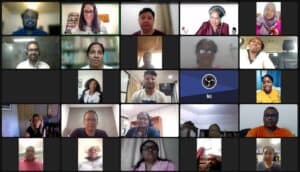
On 4 July 2023, the fellows and teachers of the Ethics Education Fellowship program gathered for the first time at a Global Community of Practice meeting. While the 30 fellows from Bangladesh, Indonesia, Kenya, Mauritius, Nepal, and Seychelles had been meeting regularly, this was the first meeting where the teachers had the opportunity to connect with colleagues from the six participating countries.
Under the title “Bringing Ethics Education to Life in our Classrooms,” the webinar brought together over 200 teachers. During the two-hour session, teachers shared their experiences of implementing ethics education in their classrooms and highlighted the challenges they face. These challenges include sustaining transformations in learners amidst negative stereotypes and biases reinforced by families and communities, as well as dealing with competitive education systems and limited time availability for participatory and collaborative learning.
However, teachers also spoke positively about how transformative pedagogy has allowed for dynamic engagement with learners, leading to improved relationships and increased reflection on diversity within their communities.
The webinar aimed to promote a deeper understanding of transformative pedagogy, and teachers from different countries had the opportunity to listen to each other’s experiences. Language interpretation in various languages, including English, Bahasa Indonesia, Bengali, and Nepali, was provided to ensure inclusivity and effective communication.
The success of the first webinar inspired another session that took place on 25 July 2023. Over 100 educators attended this session to further advance knowledge and reflections on how to support meaningful learner-led actions. The emphasis was on fostering positive transformations within the communities. Participants had the opportunity to listen to positive examples of genuine child-led actions. They reflected on the value of allowing learners to propose ideas, conduct their own projects and carry out actions to bring positive transformations in their communities. They also discussed the importance of teachers providing proper and strong support to children.
The webinar was an extraordinary opportunity for teachers from different countries, cultures, and religions to come together, share their experiences and reflect on how they can promote and ensure meaningful participation of learners in their classrooms.
The Ethics Education Fellowship program is a collaboration between the ministries of education of Bangladesh, Indonesia, Kenya, Mauritius, Nepal, and Seychelles, together with Arigatou International, the Guerrand-Hermès Foundation for Peace, the KAICIID International Dialogue Centre, the Muslim Council of Elders, and UNESCO, represented by the UNESCO Regional Office for Eastern Africa and the UNESCO New Delhi Cluster Office. The process is supported by the National Commissions for UNESCO.
The post The Ethics Education Fellowship: Insights From the Webinars with Teachers appeared first on Ethics Education for Children.
The post The Ethics Education Fellowship: Insights From the Webinars with Teachers appeared first on Arigatou International.
27/07/2023 - Children as flagbearers of hope
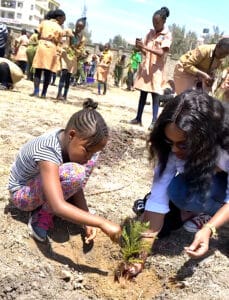
Growing trees with children
“Mummy, when are we going back to see the tree that I planted? I want to water it and see how tall it has grown!”
Above is a persistent question from my beautiful 8-year-old daughter. Her name is Natalie.
Celebrating 10 years of work and commitment to ending child poverty, as part of the ECP@10 grow trees with children campaign, on 22nd October 2022 Arigatou International’s, End Child Poverty led by an amazing team, joined efforts in a tree planting exercise. The event took place at Administration Police Training College (APTC), where over 10,000 trees and tree seedlings were donated and planted.
The grow trees with children campaign was informed by the reality that climate change is unquestionably an ongoing threat to poverty reduction. Climate change is further a direct threat to a child’s ability to survive, grow, and thrive. Often, children bear the indirect brunt of climate injustice particularly those already living in poverty.
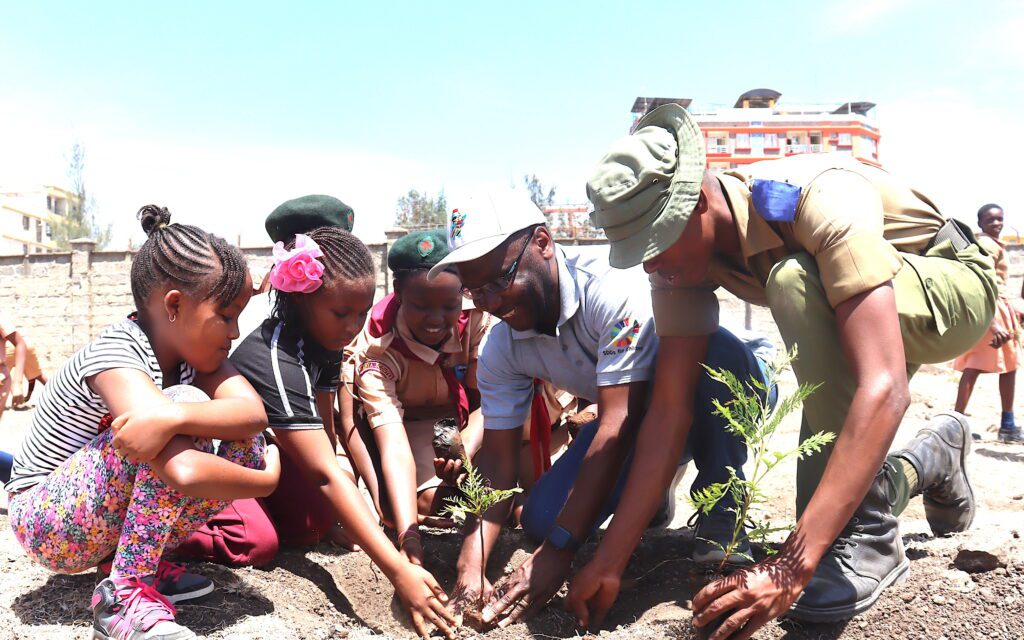
Remember when we said we are ‘leaving no one behind’– a pledge that lies at the heart of the SDG framework? Well, Halfway to the deadline for the 2030 Agenda, the SDG Progress Report; Special Edition shows we are leaving more than half the world behind. I am certain that all who have put in the work towards achieving the latter are disappointed but not surprised. The same report highlights that we have entered an age of poly-crisis where conflict, climate change, the lingering effects of the COVID-19 pandemic, and other global challenges are threatening to derail hard-earned progress toward the achievement of the SDGs. My supervisor Dr. Mustafa Y. Ali, Secretary General of the Global Network of Religions for Children, a man who sought after my own heart due to his passion for children and their well-being believes that the 4th of the 3 C’s (mentioned above) is CHILDREN. Yes! Children… why children you may wonder? The answer is simple, ‘If we care for them today, they will change the world tomorrow.
Think about it! If we are truly working towards building a better world, more so for children, why not involve them in the processes that will lead to the achievement and retention of the same? I couldn’t agree more, an investment in the child today, is additionally one in the future—a better future!
At my daughter’s tender age, through the tree planting exercise, she has learned 1) the value of planting a tree (more biblical for me, I could share endless quotes from the bible that document the same, actually, I will; refer to 2 Corinthians 9:10) and 2) that for anything to grow, it must be nurtured. The tree she planted should be 8 months old now. I don’t know what her expectations are… I hope she is neither disappointed nor surprised (pun intended); back to her question, I will take her to visit her tree, soon!
I can’t help but imagine a world where every child understands what planting a tree today can do for the world tomorrow. How do we equip our children with skills and knowledge that present a sustainable environment and respond to the need for climate action?
A humble start towards the same would be, Joining and supporting the ‘grow trees with children’ campaign and donating to this great course.
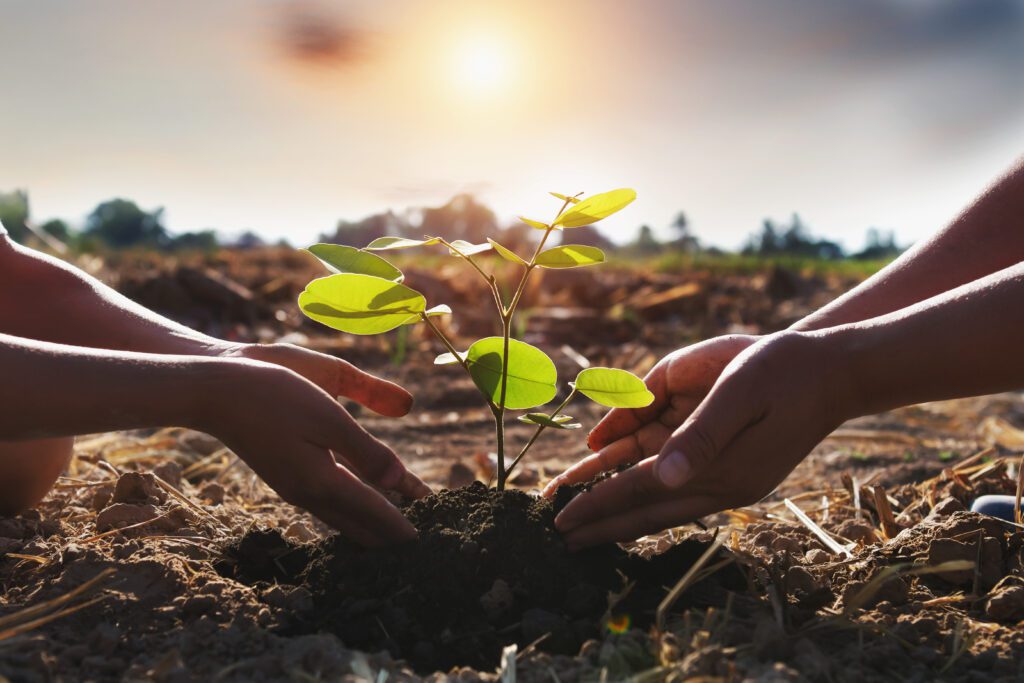
Allow me to leave you with a Chinese proverb “The best time to plant a tree was 20 years ago. The second best time is now.
Heartfelt gratitude to my friends and colleagues!
The post Children as flagbearers of hope appeared first on End Child Poverty.
The post Children as flagbearers of hope appeared first on Arigatou International.
17/07/2023 - Children account for half of the world’s poor population – MPI 2023
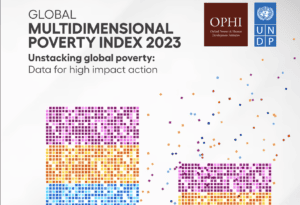
Children under 18 years old account for half ((566 million) of the Multidimensional Poverty Index (MPI) – poor people in the world, the 2023 Global MPI report has revealed.
The report reveals that 54.1 percent of poor children live in Sub-Saharan Africa, making poverty reduction for these 306 million children a vital focus for the region. On the other hand, the MPI shows that South Asia is home to 177 million poor children, or 31 percent of poor children. Across 110 countries 27.7 percent of children are poor, compared with 13.4 percent of adults. This situation calls for urgent actions and engagement in reducing child poverty.
On a positive note, the report shows that some countries recorded remarkable reductions in poverty. For example, India saw 415 million people exiting poverty within just 15 years from 2005 to 2021. And, in just four years from 2010, more people exited poverty in China (69 million) than live in the UK. While Indonesia saw an eight million reduction in the number of MPI poor in the five years to 2017.
Overall, the report, covering 110 countries’ MPI ratings, demonstrates that poverty reduction is achievable. But lack of comprehensive data over the COVID-19 pandemic poses challenges in assessing immediate prospects, according to the compilers.
Despite these encouraging trends, the lack of post-pandemic data for most of the 110 countries covered by the global MPI restricts understanding of the pandemic’s effects on poverty.
The global MPI is a key international resource that measures acute multidimensional poverty across more than 100 developing countries. First launched in 2010 the global MPI advances SDG 1—ending poverty in all its forms everywhere— and measures interconnected deprivations across indicators related to SDGs 1, 2, 3, 4, 6, 7 and 11. The global MPI is produced by the Oxford Poverty and Human Development Initiative (OPHI) and other partners. OPHI is a member of the Global Coalition to End Child poverty, which Arigatou International – End Child Poverty is part of. We believe in data and evidence, such as the global MPI as a pathway to addressing child poverty.
Read/Download the global MPI report > https://ophi.org.uk/global-mpi-2023/
The post Children account for half of the world’s poor population – MPI 2023 appeared first on End Child Poverty.
The post Children account for half of the world’s poor population – MPI 2023 appeared first on Arigatou International.
03/07/2023 - Advancing Inclusive and Peaceful Societies: The Ethics Education Fellowship is Making Strides in Africa and Asia
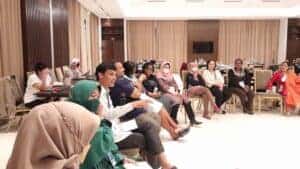
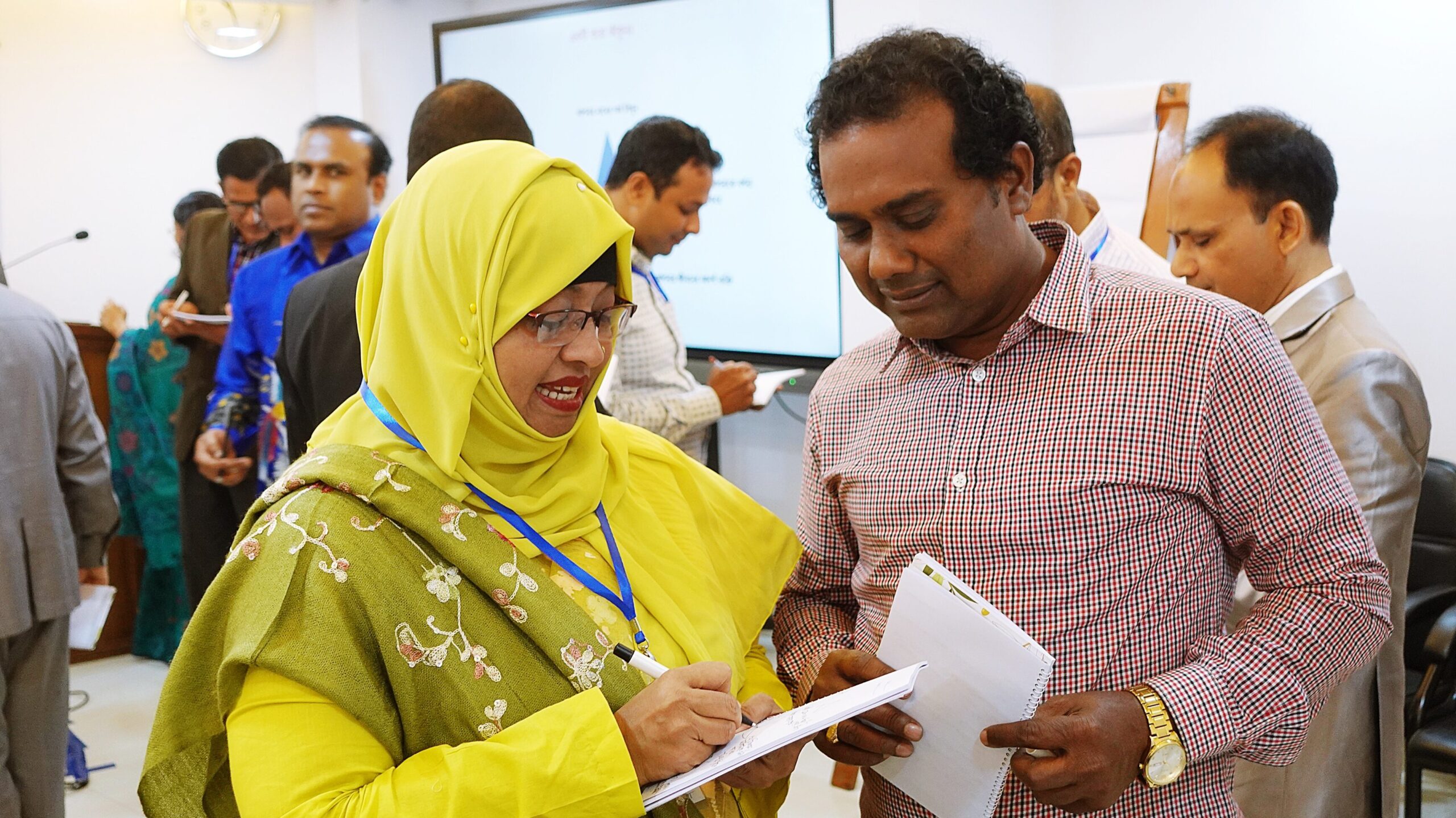
The Ethics Education Fellowship program unfolded simultaneously across six countries, making significant strides to strengthen the sustainable delivery of ethics education programs for children. Through the program, 323 teachers have been trained, paving the way to impact 4,430 children in Bangladesh, Indonesia, Kenya, Mauritius, Nepal, and Seychelles in its first year.
This groundbreaking initiative brings together six ministries of education and UNESCO National Commissions, which have worked hand in hand to integrate ethics education into their national programs. The ministries have made institutional commitments to pilot ethics education programs in formal education settings, to contribute to their national educational goals and ultimately strengthen the social cohesion to build more peaceful and inclusive societies.
“Ethics education is at the center of our planning of transforming education. It is much more important to have ethics at the center of given education rather than to have a good school infrastructure, teacher training, books and modern technologies by which we are providing it,” stated Dr. Dipu Moni, Minister of Education of Bangladesh.
This collaborative effort is made possible through a partnership between Arigatou International, the Guerrand-Hermès Foundation for Peace, the KAICIID International Dialogue Centre, the Muslim Council of Elders, the UNESCO Regional Office for Eastern Africa, and the UNESCO New Delhi Cluster Office, in collaboration with the National Commissions for UNESCO of the participating countries.

A Transformative Pedagogy Approach
Education plays a critical role in building more inclusive, peaceful societies. Ethics education, in particular, can equip teachers to provide educational spaces that nurture in learners the kind of ethical values and ethical reflection practices that can equip them to flourish and thrive.
“When we talk of ethics education we are not talking about the philosophical study of ethics, we are talking about creating spaces for children. We want to go on a journey with you to help empower our children,” explained Mr. Suchith Abeyewickreme, Program Officer, Arigatou International – Geneva.
Ethics Education equips children and youth with life skills by employing transformative pedagogical approaches that place them at the center of learning, enhance their capacity to think critically, make ethical decisions, and learn to work collaboratively with others to make positive contributions to their communities.
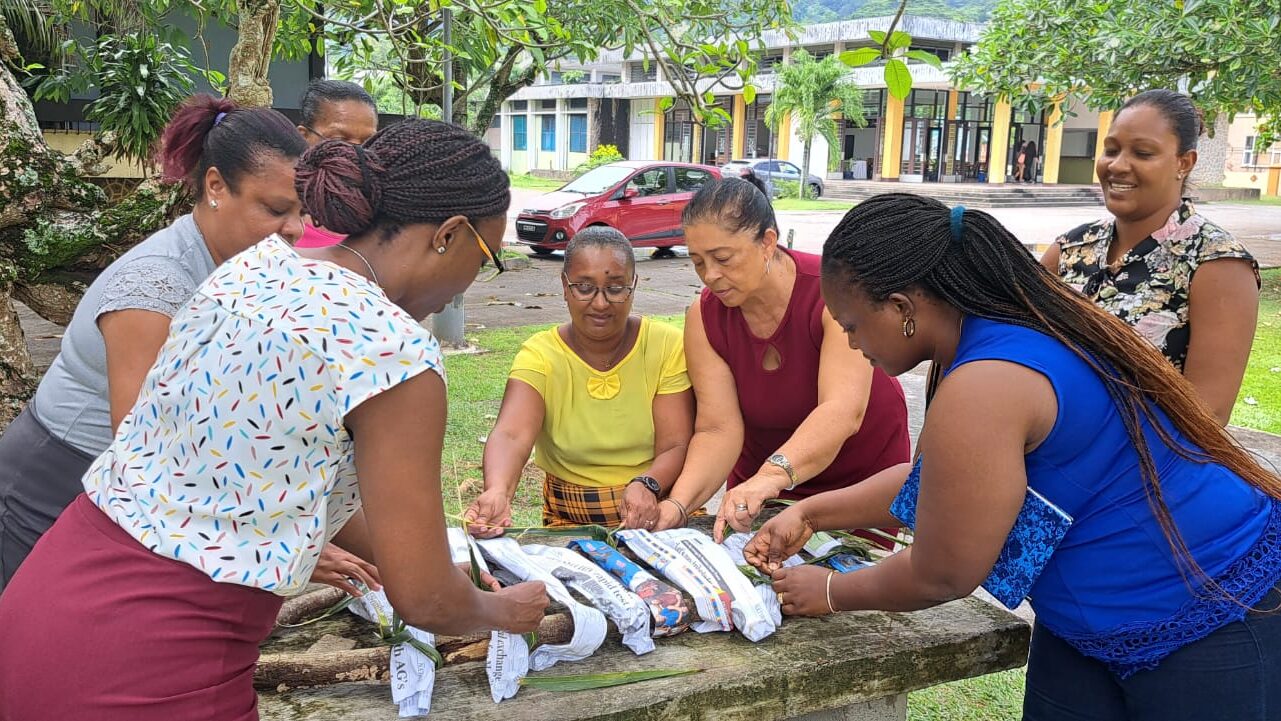
First Train the Trainers Workshop
The Ethics Education Fellowship kicked off in Indonesia on 3-9 October 2022 with a Train the Trainers Workshop for the 30 fellows, which includes ministry officers, school principals, teachers, professors, lecturers, teacher trainers, and curriculum developers from the six participant countries. At the workshop, the fellows were trained in designing and delivering training workshops for teachers.
“The fellows are ethics education champions in their country. They will serve to strengthen the country’s capacity for ethics education through the capacity development of teachers and teacher education as well as school-based initiatives,” explained Ms. Mary Kangethe, Director of the Education Programme at the Kenya National Commission for UNESCO.
During this immersive workshop, the fellows sharpened their knowledge, skills, and competencies in ethics education and transformative pedagogies that support dialogue, reflection and action. They are now spearheading the program at the national level, and working with other government education partners to ensure that ethics education can be integrated into training, national programming and policies.
Mike Waltner, Senior Programme Manager for the Asia Region Programme at the International Dialogue Centre – KAICIID described this initiative as transformative. “It’s more than integrating ethics and dialogue into education systems; it’s about catalyzing societal change. Teachers are bringing the lessons from the fellowship into classrooms and beyond to empower children and youth to be agents of that change. At KAICIID, we believe in the power of dialogue to foster understanding and peace. This project equips young learners to be leaders who can work together with their peers from different religions and cultures to create a better world,” he said.

Training Workshops for Teachers
Between January and May 2023, the fellows conducted national training workshops for teachers, with the technical support of international trainers from Arigatou International and KAICIID. In total, 323 teachers were trained in the implementation of ethics education programs for children.
“If I hadn’t attended this workshop on ethics education, I wouldn’t have noticed several things that I’m aware of now. This workshop has had a direct impact on me. I now find myself automatically thinking, reflecting, and seeing things differently,” shared one of the participants from Seychelles.
A participant from Nepal shared how the workshop had helped him become aware of his own unconscious biases. He understood the importance of treating all children equally, regardless of their differences, and felt empowered to ensure fairness and inclusivity for all students in the classroom.
These trained teachers are set to implement ethics education programs in their schools according to their country’s implementation plans. In its inaugural year, the program aims to reach 4,430 children.
The group of partners developed a comprehensive Training Guide to support the national teacher training workshops, offering step-by-step guidelines to support fellows to conduct the workshops, along with a framework and tools for monitoring, evaluation and learning. A Teacher Activity Booklet was also developed to support the designing and delivering of ethics education programs in the classroom.
The guides are based on Arigatou’s Ethics Education Approach and the expertise of KAICIID on interreligious and intercultural dialogue as central components of a transformative pedagogy that contribute to the promotion of global citizenship. They also include a human-centered education approach, promoted by the Guerrand-Hermes Foundation for Peace, that places the learner at the center of the education experience.
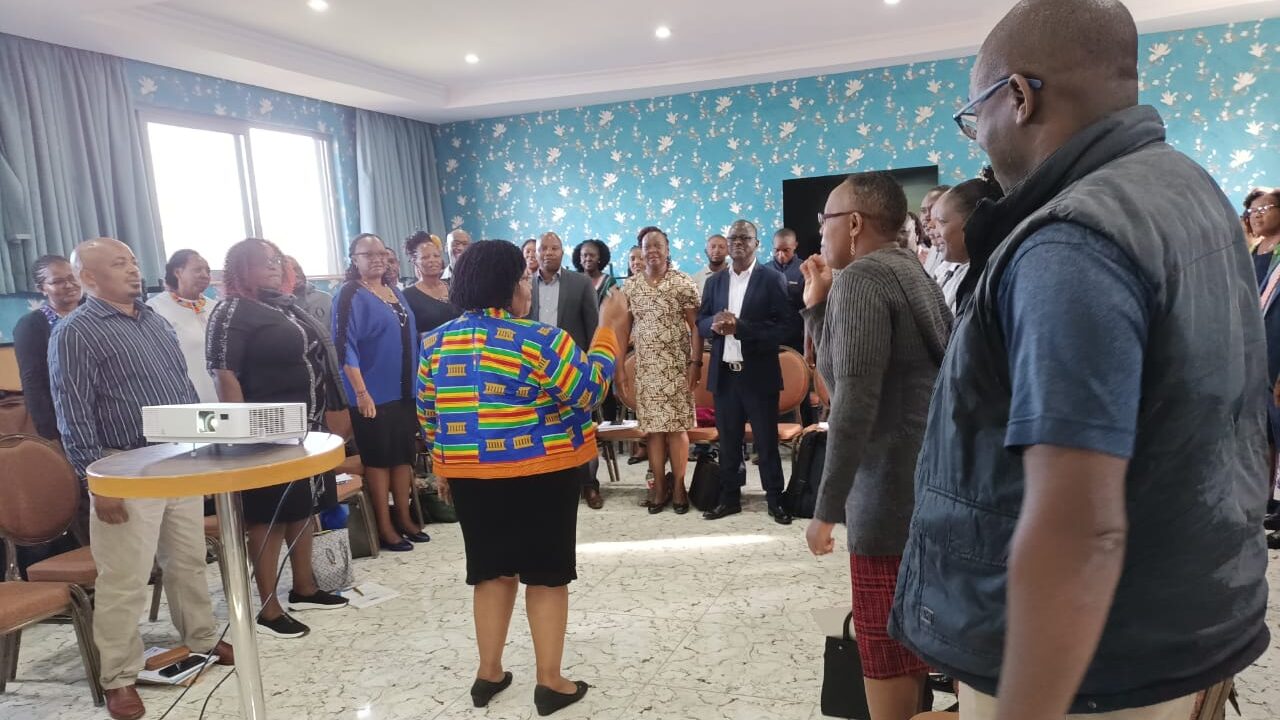
A Global Community of Practice
This initiative not only aims to establish a network of formal education institutions but also provides a platform for sharing knowledge and building capacity. In this light, a Global Community of Practice was established, fostering a network of Fellows. Through monthly webinars, participants deepen their knowledge on specific topics, receive support in preparing national workshops, share experiences, and strengthen connections.
Reflecting on the benefits of belonging to the Global Community of Practice, Ms. Nita Isaeni, a fellow from Indonesia said: “Being part of this community means a lot to me. It’s a place where I can learn and improve, not just in terms of knowledge but also in how I perceive things and connect with my inner self. Moreover, I get the opportunity to build connections and social networks with people from all over the world, which is very valuable to me.” Ms. Isaeni is the Coordinator of Learning Transformation, at the Directorate of Teachers for Primary School, MoECRT.
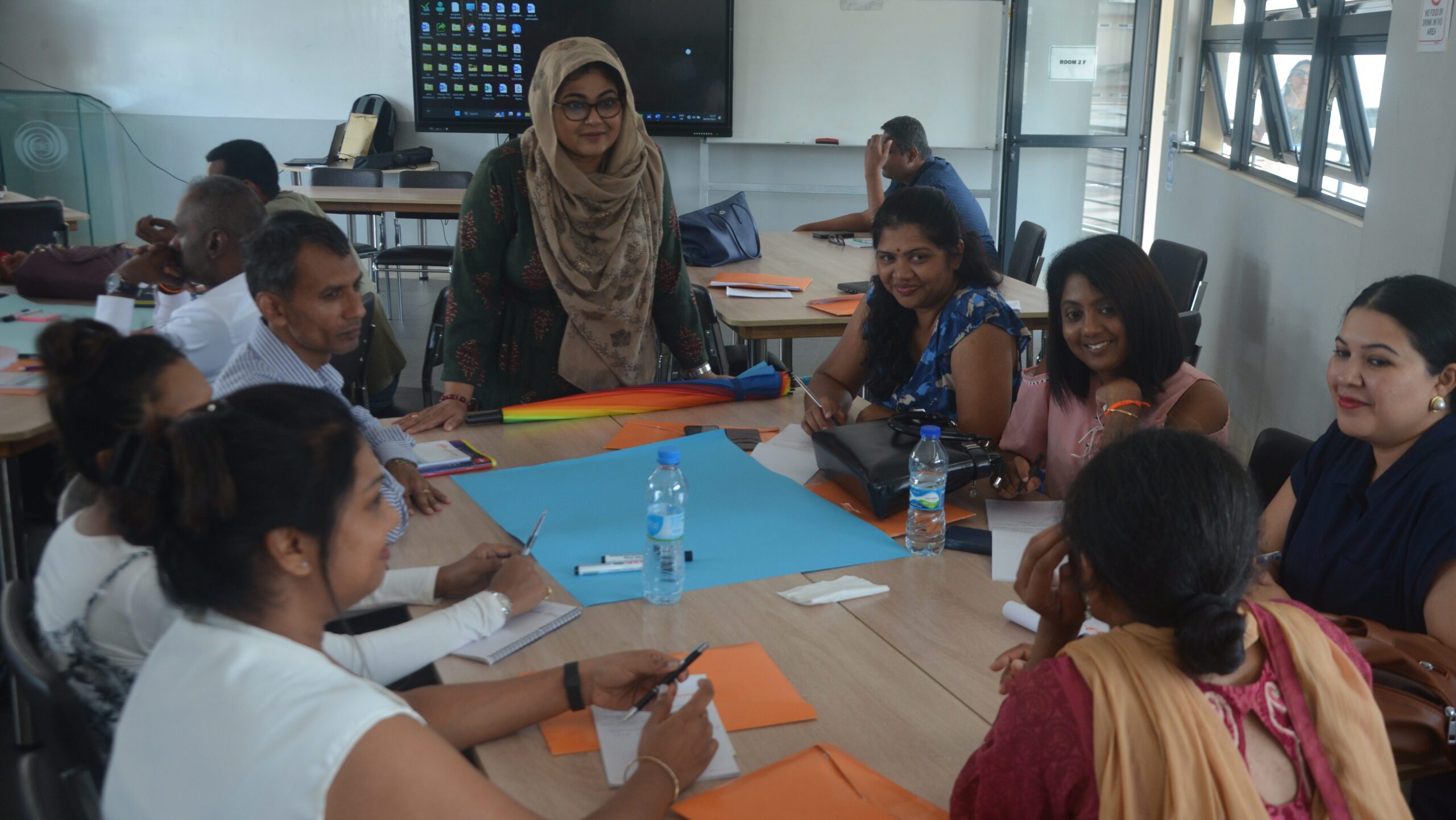
Implementation with children in schools
In March 2023, the implementation with children began, yielding encouraging results. Teachers have witnessed positive outcomes, with notable improvements in student engagement and participation. Integration of peace and ethics clubs in schools has been a successful initiative, fostering a sense of community. Ms. Norah Babu, a teacher from Thogoto Model Primary School in Kenya, shared her perspective: “Through participatory and collaborative learning, students who were once hesitant to ask questions now feel comfortable seeking assistance from their peers. I’ve also learned the importance of creating a safe learning environment, resulting in my students eagerly anticipating my lessons.”
The Ethics Education Fellowship responds to the critical need to prioritize and invest in ethics education within formal education systems. By building the capacity of teachers to foster positive relationships and empower learners, the program contributes to the creation of more inclusive, respectful, and resilient societies. Equipped to respond to ethical challenges, students become active citizens and agents of positive change.
The Ethics Education Fellowship program serves as an inspiring example of the power of collaboration, dedication, and a shared commitment toward children, their education, and the future of our societies.
This news article has been developed jointly by the partners of the Ethics Education Fellowship.
The post Advancing Inclusive and Peaceful Societies: The Ethics Education Fellowship is Making Strides in Africa and Asia appeared first on Ethics Education for Children.
The post Advancing Inclusive and Peaceful Societies: The Ethics Education Fellowship is Making Strides in Africa and Asia appeared first on Arigatou International.
12/06/2023 - Empowering Educators in Seychelles: National Teacher Training Workshop by the Ethics Education Fellowship
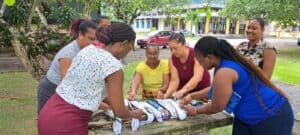
The Ethics Education Fellowship made its debut in Seychelles with a national Teacher Training Workshop, held from 20 to 24 February 2023, which brought together 20 primary and secondary school teachers. The program, endorsed by the President of Seychelles and approved by the Cabinet of Ministers, aims to extend its reach to over 450 children across 15 schools.

The Ethics Education Fellowship Program
The Fellowship Program is a collaborative initiative involving the ministries of education from Bangladesh, Indonesia, Kenya, Mauritius, Nepal, and Seychelles. The program seeks to enhance the sustainable implementation of ethics education programs in formal education settings, promoting intercultural and interreligious learning and dialogue, as a contribution to global citizenship, and building more inclusive and peaceful societies.
By building the capacities of educators in each participating country, the program equips them with the skills to design and facilitate transformative learning journeys for children. This approach places learners at the center of the educational experience, fostering critical thinking, ethical decision-making, and collaborative problem-solving to empower them to make positive contributions to their communities.
Ms. Diana Monthy, a Lecturer at the Seychelles Institute of Teacher Education and a Fellow of the program, highlighted the importance of ethics education for the country. Referring to the national Constitution’s preamble, she emphasized that the program presents a timely opportunity to assess the national commitment and progress in creating “a just, fraternal and humane society in a spirit of friendship and co-operation with all peoples of the world… and where Seychelles serve as an example of a harmonious multi-racial society.”
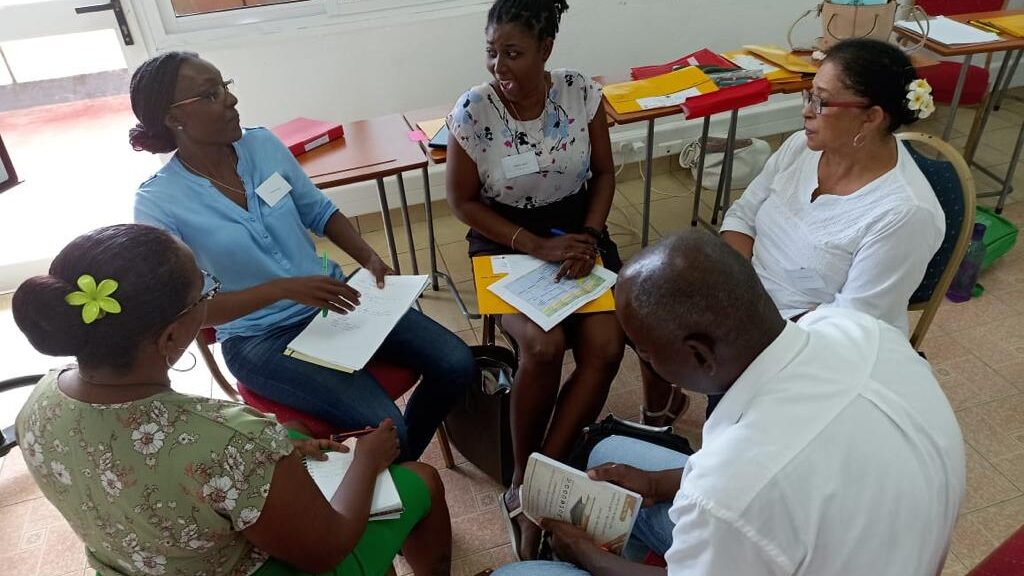
The Training Workshop for Teachers
Ms. Merna Eulentin, the Principal Secretary for Education of Seychelles, took the stage at the opening ceremony of the training workshop for teachers, setting the tone for the upcoming days. In her opening remarks, Ms. Eulentin emphasized the Government of Seychelles’ commitment to ethics education and its importance as a means to strengthen educational programs: “Ethics education is the focal point at this critical untimely topic, it is a means to strengthen education programs that foster ethical values in an inter-cultural learning context,” she said. She also highlighted how this initiative aligns with Sustainable Development Goal 4.7, promoting a culture of peace, global citizenship, non-violence, and appreciation of cultural diversity.
The event was attended by the Executive Director of the Office of the Minister of Education, members of the National Assembly, the Dean of the University of Seychelles, as well as students and teachers.
Facilitator Mr. Suchith Abeyewickreme from Arigatou International delivered a keynote address, emphasizing the necessity of ethics education in a world that is increasingly diverse and interconnected. Mr. Abeyewickreme highlighted the need to acknowledge and engage with the diversity within classrooms and among teachers, making it an essential aspect of education.

Hosted at the University of Seychelles, the workshop was led by the national team of fellows with support from Mr. Abeyewickreme. The participants consisted of school teachers specializing in Personal Social Education and Catholic Religious Education.
Throughout the five-day workshop, participants familiarized themselves with the Ethics Education framework presented in the program. The framework is centered around three pillars: relationships, ethical reflections, and collective action. This approach enables learners to develop positive relationships, engage in ethical reflection and dialogue, and enhance their ability to live together harmoniously. By cultivating these skills, the program aims to empower children to effect positive change within their communities, fostering their personal growth and contributing to their societies.
Reflecting on the workshop, one participant shared, “If I hadn’t attended this workshop on ethics education, I wouldn’t have noticed several things that I’m aware of now. This workshop has had a direct impact on me. I now find myself automatically thinking, reflecting, and seeing things differently.”

Launch of the Implementation in Schools
The Fellowship Program was officially launched in Seychelles on 31 March 2023 in a formal ceremony, marking the beginning of its implementation with children from local schools.
The ceremony started with an address from Dr. Justin Valentin, Minister of Education of Seychelles, followed by Mrs. Vicky Michel, Secretary General of the Seychelles National Commission for UNESCO, and Ms. Maria Lucia Uribe, Executive Director of Arigatou International – Geneva.
During the ceremony, the team of fellows presented the Ethics Education Fellowship highlighting its pillars and transformative pedagogical approach. Subsequently, certificates were awarded to the trained teachers.
Mr. Ahmed Afif, Vice President, and Mrs. Linda Ramkalawan, First Lady of the Republic of Seychelles, also attended the event. Artistic performances, including a song and a Creole dance performed by children, added to the celebratory atmosphere of the ceremony.
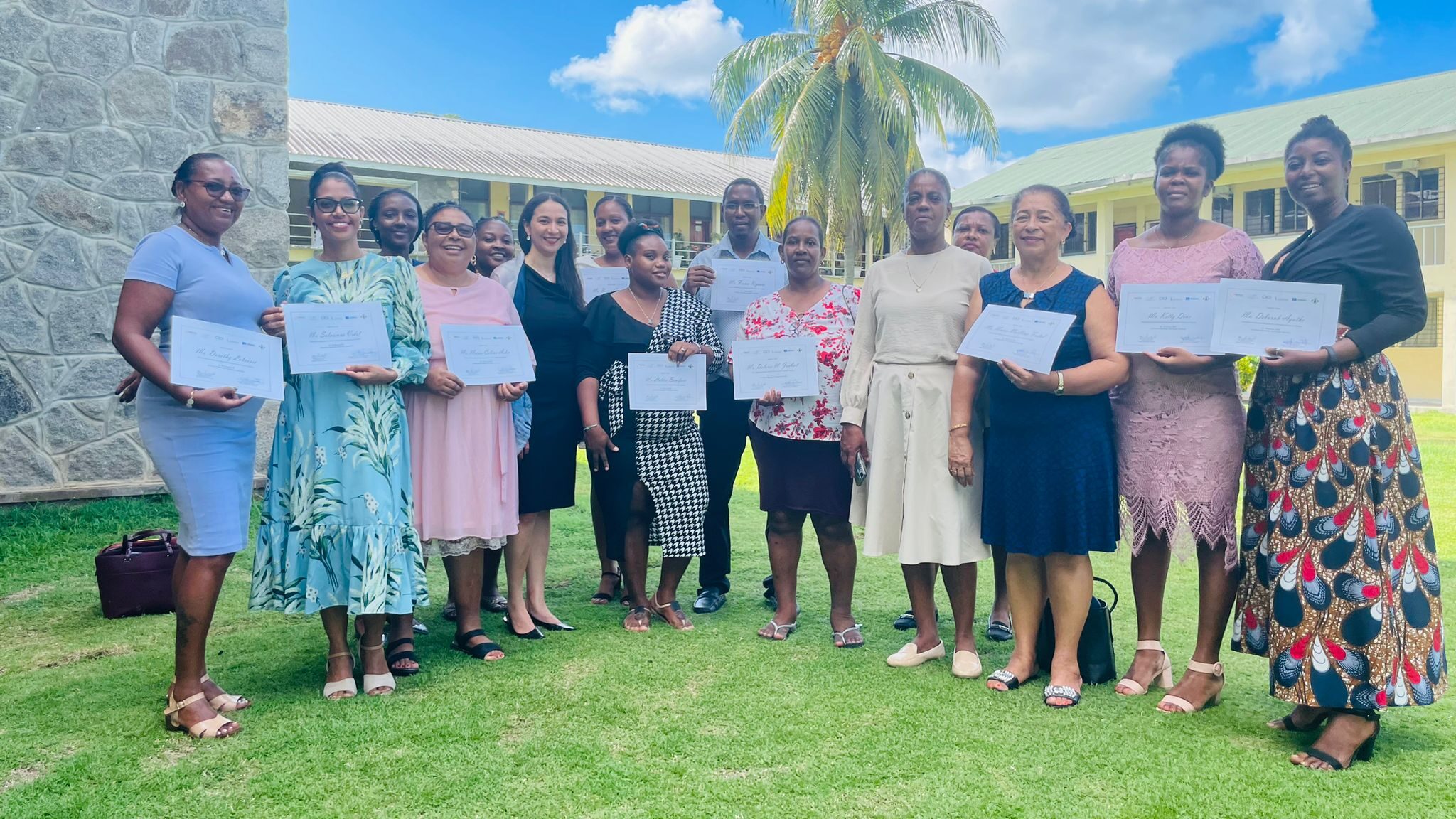
A Collaborative and Multistakeholder Journey
The Ethics Education Fellowship program is built on a fellowship model, with five representatives from each country collaborating to lead the national efforts. These representatives include educators and ministry officers who organize training workshops for teachers, monitor the successful implementation of ethics education programs for children, and advocate for the crucial role of ethics education at a national level.
Furthermore, the fellows have established a Global Community of Practice to foster collaboration, share experiences and work together for the expansion of the program.
The program is a collaboration between the ministries of education, together with Arigatou International, the Guerrand-Hermès Foundation for Peace, the KAICIID International Dialogue Centre, the Muslim Council of Elders, and UNESCO, represented by the UNESCO Regional Office for Eastern Africa and the UNESCO New Delhi Cluster Office. The process is supported by the National Commissions for UNESCO of Indonesia and Kenya.

We extend our heartfelt appreciation to the dedicated fellows: Ms. Betty-Mai Sofa, Ms. Sharon Frederic, Ms. Diana Monthy, Ms. Sandra Jeanne and Ms. Erica Derjacques-Inacio. We thank them for their invaluable contribution in conducting this teacher training workshop. We would also like to express our sincere gratitude to the partners and organizations involved, whose collaboration and support have played a pivotal role in ensuring the sustainability of this program.
The post Empowering Educators in Seychelles: National Teacher Training Workshop by the Ethics Education Fellowship appeared first on Ethics Education for Children.
The post Empowering Educators in Seychelles: National Teacher Training Workshop by the Ethics Education Fellowship appeared first on Arigatou International.
12/06/2023 - Celebrating the World Environment Day at the SDGs Academy for Children.
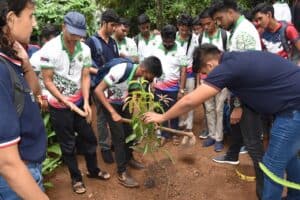
In commemoration of the World Environment Day, the SDGs Academy ‘Model Classroom’ organised a learning and tree planting session with 24 students from Maris Stella College Negombo, Sri Lanka.
The session, which in part took place within the Academy premises took the students through an understanding of SDGs 6 (Clean Water and Sanitation), 13 (Climate Action), 14 (Life Below Water) and 15 (Life on Land). The choice of these SDGs was informed by their close relation to the environment and the different ecosystems. Addressing these SDGs in particular, among other goals, will go a long way in preserving and enhancing the environment and the global climate scourge in general.
“The Model classroom is the classroom we are looking for in our school. A friendly space for us to learn, be innovative, and be ourselves with our fresh ideas. Thank you Arigatou International for creating that space for us to learn SDGs and be innovative in our own way” – Venuja, 15 years old boy from Sri Lanka.
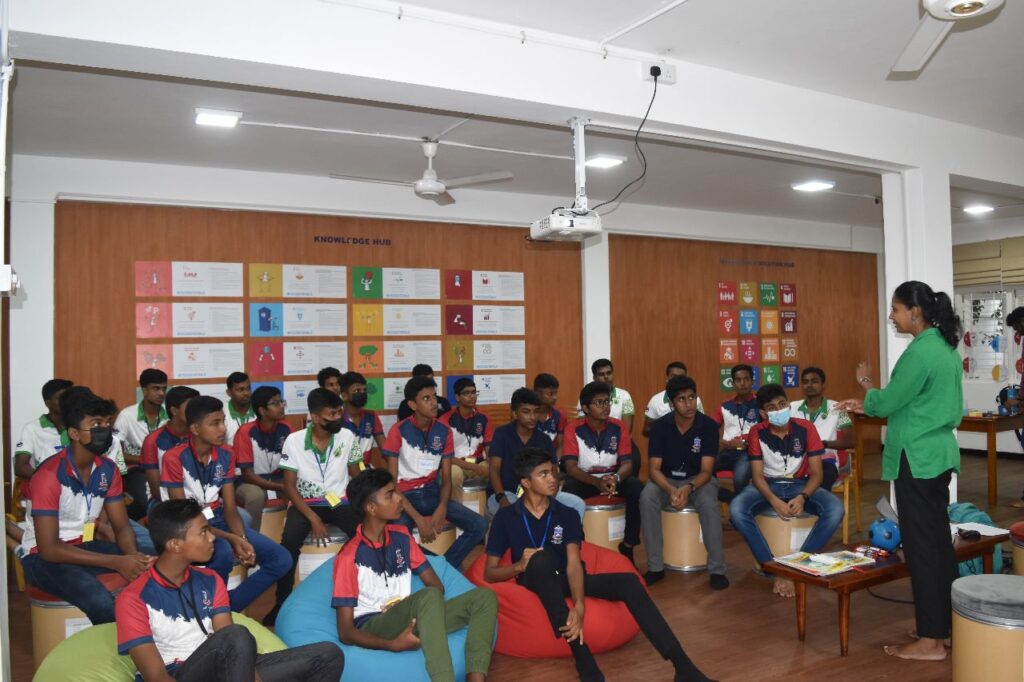
Discussions around these SDGs were linked to the Day’s theme: Solutions to Plastic Pollution – a call for global action to end plastic pollution. This was informed by worrying reports that each year, an estimated 11 million tonnes of plastic waste flows into the world’s oceans; this volume is expected to triple by 2040.
Discussions in the SDGs Academy for Children were followed by tree planting activities. The students and staff from the Academy/Sarvodaya Shramadana Movement planted mango trees signifying their commitment to conserve the environment and enhancing food production through fruits born out of the mango trees.
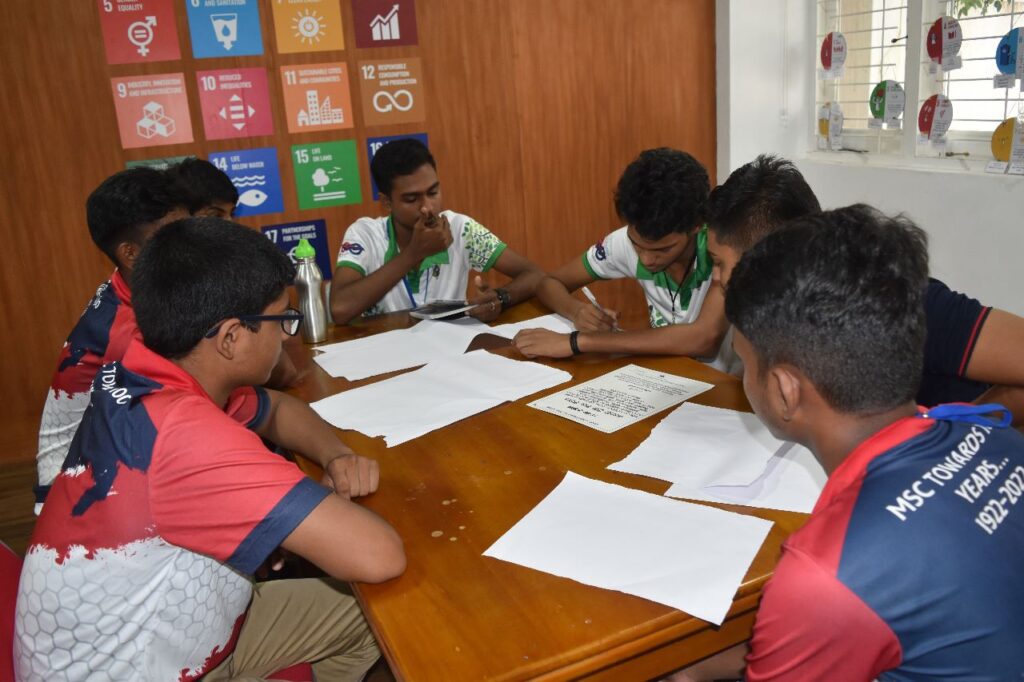
Further, the students pledged to take deliberate and continued action towards achieving the SDGs, after an exciting enlightenment about the global goals at the Academy. The Model Classroom aims to keep and advance such partnerships with institutions in order to raise more awareness about the SDGs and the need to involve young people in achieving the goals.
“This is not only a space or a learning course for children to learn about SDGs: This is something beyond that, where children could learn about their lives and change their way of living for a better world that we are dreaming of as adults. This is a place even adults could learn and contribute to a better world with children” Jude Preman, teacher, Maris Stella College, Negombo
Declared by the United Nations in 1972, the World Environment Day to highlight that the protection and health of the environment is a major issue, which affects the well-being of peoples and economic development throughout the world. The celebration of this day provides us with an opportunity to broaden the basis for an enlightened opinion and responsible conduct by individuals, enterprises and communities in conserving the environment.
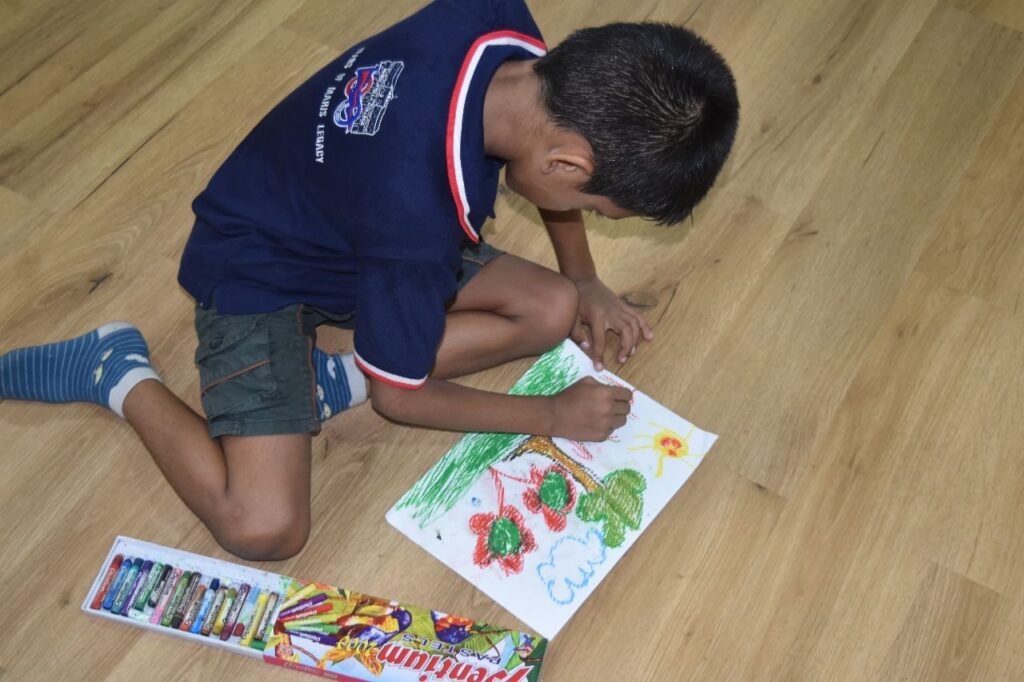
The post Celebrating the World Environment Day at the SDGs Academy for Children. appeared first on End Child Poverty.
The post Celebrating the World Environment Day at the SDGs Academy for Children. appeared first on Arigatou International.
09/06/2023 - The Ethics Education Fellowship Makes Strides in Bangladesh
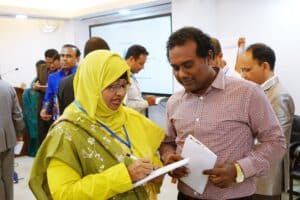

A group of 38 teachers from Bangladesh recently participated in a 5-day training workshop as part of the Ethics Education Fellowship program. The workshop aimed to equip these educators with the necessary skills to implement the program in 19 schools, benefiting approximately 1,200 children across the country.
The Ethics Education Fellowship program is a collaborative initiative between the governments of Bangladesh, Indonesia, Kenya, Mauritius, Nepal, and Seychelles. Its objective is to foster ethical values in children, promote global citizenship and build a more peaceful and inclusive society. The Directorate of Secondary and Higher Education – DSHE, under the Ministry of Education of Bangladesh, is responsible for coordinating the program in the country.
Program Launch in Bangladesh
On 22 January 2023, the Ethics Education Fellowship program was officially launched in the People’s Republic of Bangladesh. Dr. Dipu Moni, the Minister of Education of Bangladesh, participated in this occasion. In her keynote speech, Dr. Moni emphasized the crucial role of ethics education in transforming education, stating, “Ethics education is at the center of our planning. It is much more important to have ethics at the core of education than to focus solely on infrastructure, teacher training, books, and modern technologies.”
The launch ceremony also saw the participation of Mr. Mohibul Hassan Chowdhury, Deputy Minister; Mr. Suleman Khan, Secretary, Secondary and Higher Education Division, Ministry of Education; Prof. Nehal Ahmed, Director General, Directorate of Secondary and Higher Education; Ms. Susan Viz, Officer in Charge of UNESCO Bangladesh, representatives from partner organizations, as well as teachers and children.
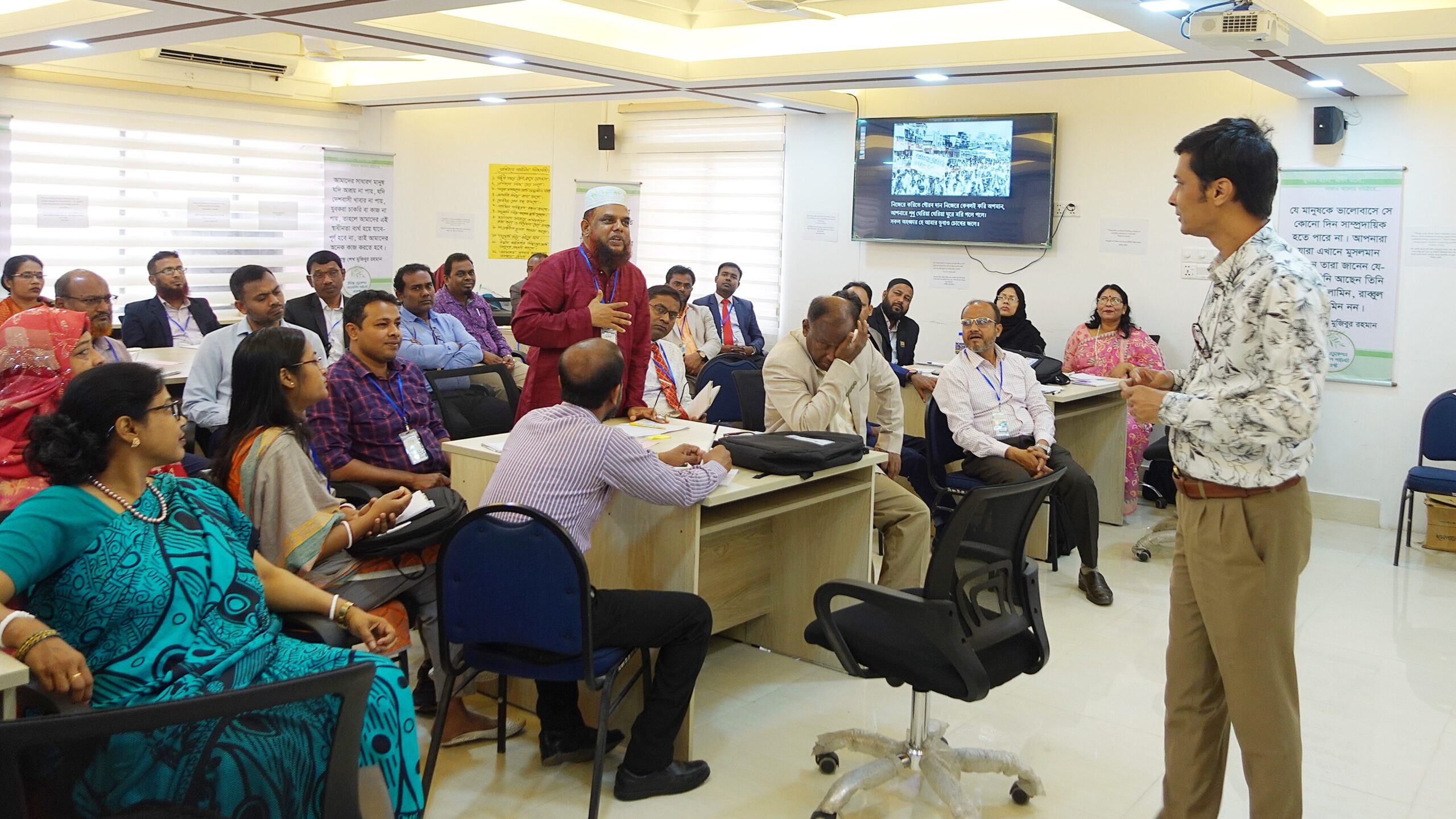
Training Workshop for Teachers
The training workshop for teachers took place from 22 to 26 February 2023. The local fellows, a group of five educators and ministry representatives, facilitated the workshop. The fellows play a pivotal role in leading the training, delivery, and advocacy efforts within the country.
Additionally, Ms. Eleonora Mura, Senior Expert on Monitoring, Evaluation, and Learning from Arigatou International, provided support and guidance to the fellows during the workshop.
The opening ceremony of the training workshop featured keynote speeches by Dr. Suleman Khan, Secretary for Secondary and Higher Education, and Mr. Md. Belayer Hossain Talukdar, Additional Secretary. They emphasized the importance of ethics education in fostering critical thinking, and positive relationships, and implementing Global Citizenship Education. They also highlighted how the ongoing curriculum reform in Bangladesh has integrated ethics as a vital component, which is being incorporated into grades 1 and 2, as well as 6 and 7.
During the workshop, participants explored the Ethics Education Conceptual Framework, centered around three pillars: Relationships, Ethical Reflection and Dialogue, and Collective Action. Ms. Amina Begum, Senior Teacher of Bengali at Biddamoye Govt. Girls School, shared her perspective, stating, “The concept of dialogue and a safe learning environment are very meaningful aspects that will help me prepare and implement ethics education with children.”
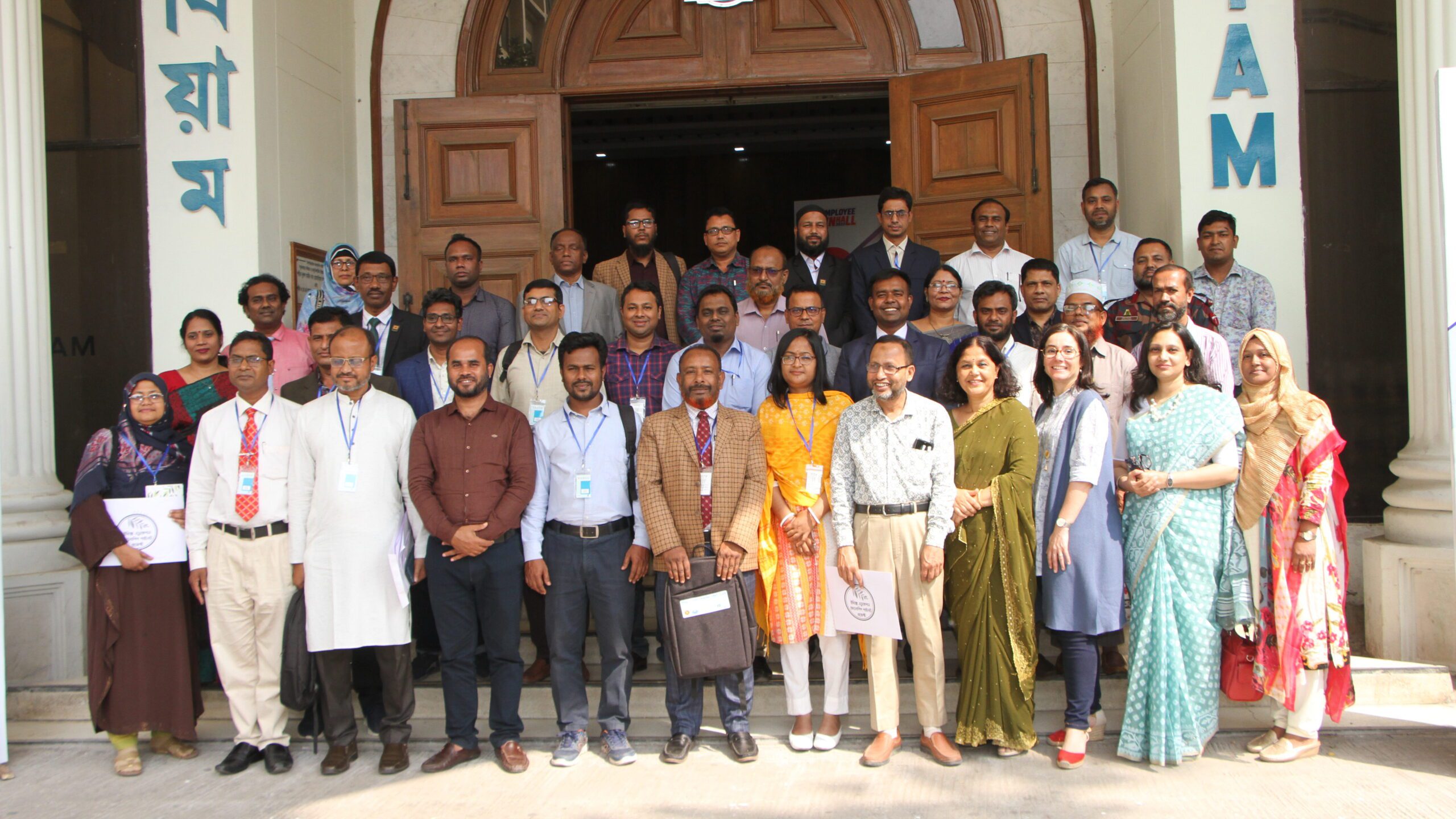
A Transformative Impact on Teachers
After completing the workshop, the trainees expressed how the transformative pedagogy approach presented in the program empowered them to critically question their assumptions and biases. They felt encouraged to examine the root causes of social injustices and take action to create a more just and equitable society. The teachers recognized their potential as powerful advocates for change within their schools and communities, driving improvements in education at all levels.
Mr. Joydip Dey, one of the program fellows, highlighted the significant benefits brought about by the program. He pointed out, “In our previous education system, there was a heavy emphasis on rote learning, resulting in students being fed pre-structured ideas. Unfortunately, this approach sometimes contributed to increased intolerance in society. However, with the introduction of the new curriculum, we are now prioritizing independent thinking among learners, which strongly aligns with the principles of ethics education. It is indeed a crucial time to implement ethics education in Bangladesh.” Mr. Dey is an Assistant Professor at the Government Teachers Training College in Dhaka and a member of the subject committee of the National Curriculum Framework.
The implementation of the program with children in schools began in March, yielding highly positive responses from teachers, with significant engagement observed among the participating children.
We extend our sincere appreciation to the dedicated fellows: Ms. Geetanjali Barua, Mr. S.M. Shafiul Alam, Mr. Zonayed Ahmed, Mr. Joydip Dey, and Dr. Syed Mizanur Rahman. We also thank all the individuals and organizations involved in the successful execution of the Ethics Education Fellowship program in Bangladesh, and the teachers for their commitment and enthusiasm.
The post The Ethics Education Fellowship Makes Strides in Bangladesh appeared first on Ethics Education for Children.
The post The Ethics Education Fellowship Makes Strides in Bangladesh appeared first on Arigatou International.
05/06/2023 - Indonesian Teachers Complete the Training Phase of the Ethics Education Fellowship Program

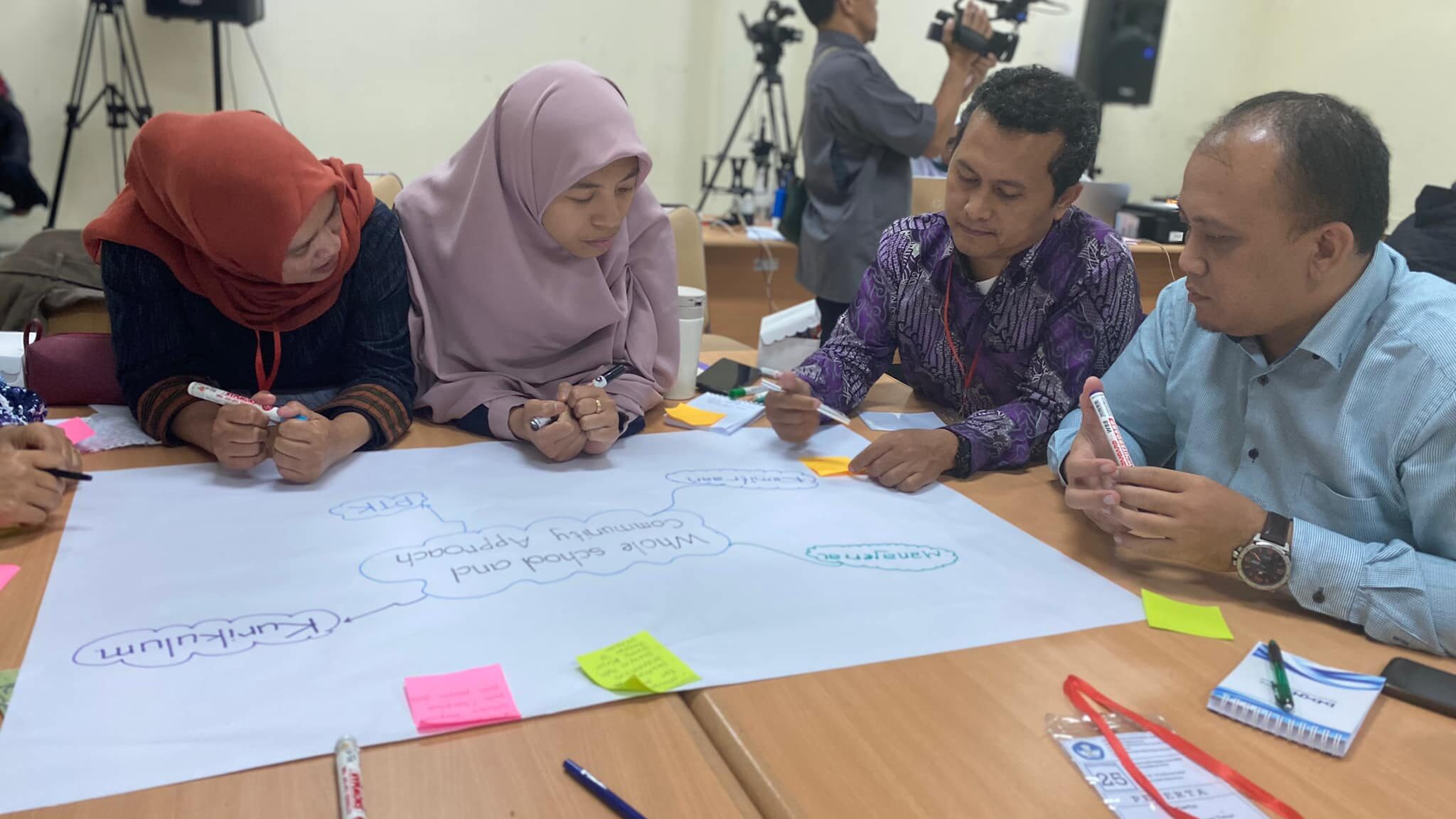
The training workshops for teachers under the Ethics Education Fellowship, concluded successfully in Indonesia, reaching 200 participants from five regions. The teachers received specialized training through engaging activities, equipping them with the necessary skills and knowledge to implement ethics education programs in their local schools. It is estimated that these teachers will reach 1,500 students by the end of 2023.
A Collaborative and Multistakeholder Journey
Designed to strengthen the sustainable delivery of ethics education programs for children, the Fellowship invites teachers to prepare and facilitate a learning journey for children. This approach helps learners to develop positive relationships with themselves and others, engage in ethical reflection and dialogue, enhance their ability to learn to live together and develop collective actions to make positive impacts in their communities.
The Ethics Education Fellowship is being carried out simultaneously and collaboratively in Bangladesh, Indonesia, Kenya, Mauritius, Nepal, and Seychelles. The program operates on a fellowship structure, where dedicated representatives from each country play a key role. These fellows lead the national efforts by organizing training workshops for teachers, ensuring the successful implementation of ethics education programs with children, and advocating for the importance of ethics education on a national scale. Furthermore, the fellows have established a Global Community of Practice to learn from each other, collaborate and support the expansion of the program.
This program is a collaborative effort involving Arigatou International, the Guerrand-Hermès Foundation for Peace, the KAICIID International Dialogue Centre, the Muslim Council of Elders, and UNESCO, which is represented by the UNESCO Regional Office for Eastern Africa and the UNESCO New Delhi Cluster Office. The process is supported by the National Commissions for UNESCO of Indonesia and Kenya. The program is being led in each country by the ministries of education, through the fellows, a group of educators and ministry officers, that were trained as teacher trainers back in October 2022.
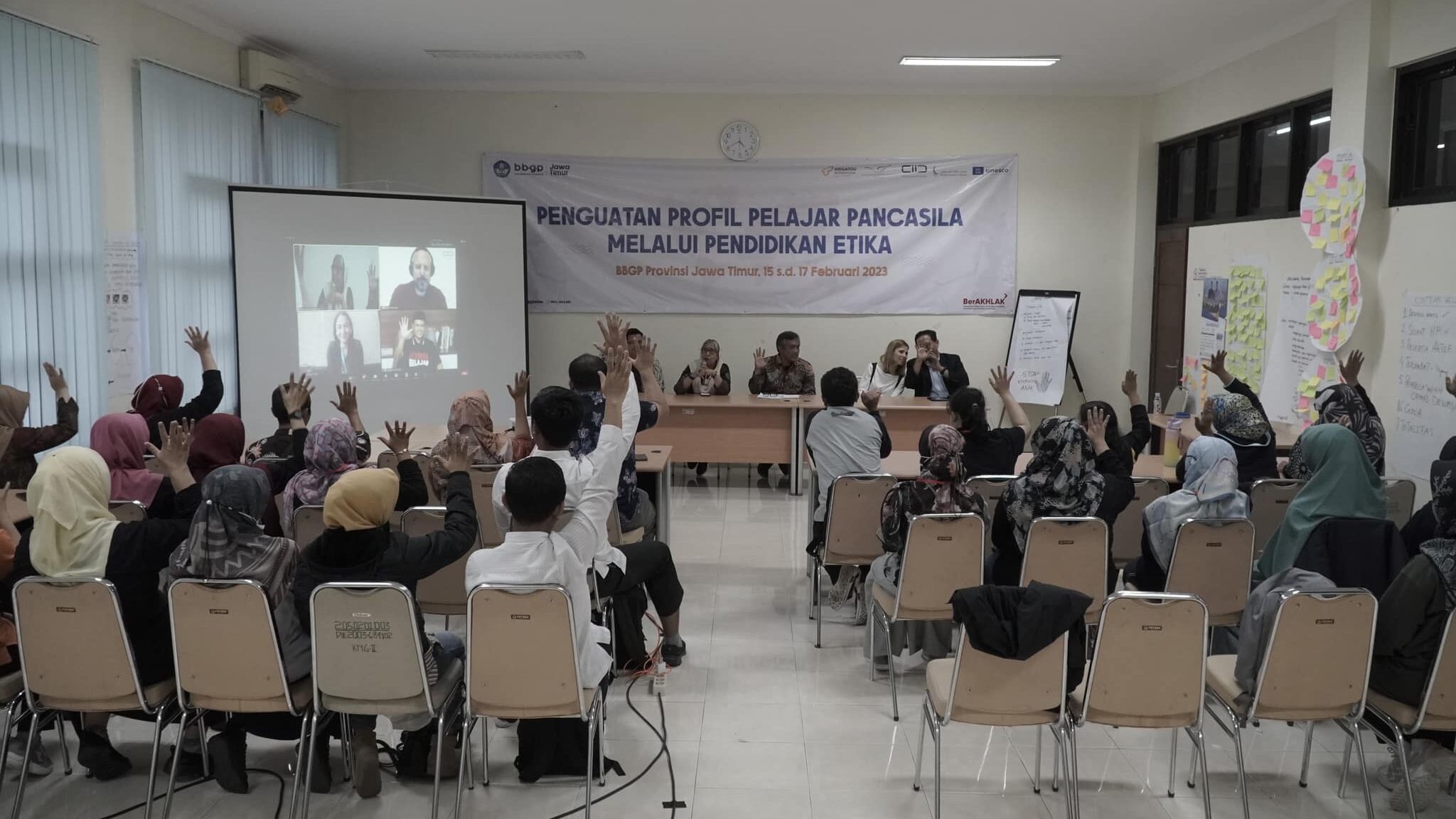
Empowering Teachers through Training in Indonesia
The training program for Indonesian teachers consisted of two phases. The first phase, a hybrid workshop held in Suravaya in February 2023, brought together 67 participants from various regions. Over three days, participants had the opportunity to share their experiences, discuss critical issues affecting learners, and explore the role of education in addressing these challenges. Key topics included discrimination, stereotypes, violence, and their impact on children’s lives in schools.
Participants explored the Ethics Education Conceptual Framework which is built around three pillars: Relationships, Ethical Reflection and Dialogue, and Collective Action. They reflected on what ethics means in their lives and their interactions with others, and on the ethical challenges they, the children and their communities face. While doing it, participants identified how ethics education programs can foster transformation in children by encouraging ethical reflections and engaging them in dialogue with others.
“The workshop provided extraordinary benefits to me personally. Now I better understand how an educator should be a role model for students, especially in the classroom,” said one of the teachers, while highlighting the importance of learning to respect each other, and accept our differences.
Teachers explored the alignment between the transformative pedagogy approach and the Pancasila principles of the Indonesian Constitution. They also recognized the critical significance of interreligious and intercultural dialogue and its practical implementation in the classroom.
Dr. Itje Chodidjah, Executive Chair of the Indonesian National Commission for UNESCO, Ministry of Education, Culture, Research and Technology, Indonesia, emphasized the relevance of the Fellowship during her opening remarks at the workshop. She highlighted the program’s connection to the Pancasila ideology and expressed her commitment to supporting the Fellowship at the national level.
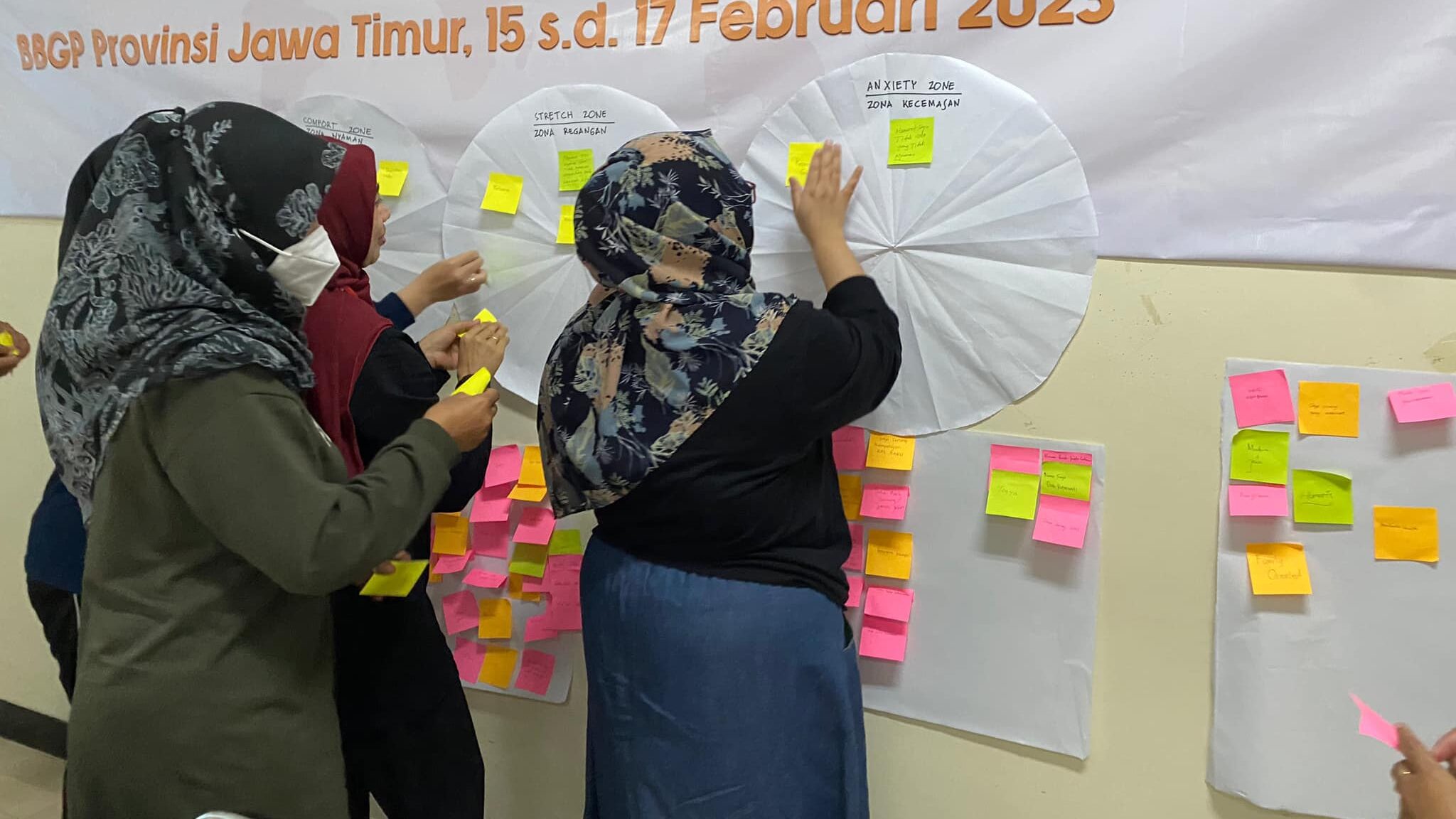
In May 2023, the second phase of the program took place with onsite workshops in five different regions: Sorong Regency, West Java, West Kalimantan, South Sukawesi, and East Java. These workshops focused on building teachers’ capacity to foster positive relationships and empower learners to create inclusive, respectful, and resilient societies. Teachers received guidance on implementing ethics education programs across various grade levels, from kindergarten to elementary, junior, and senior high school.
“For the Indonesian context, the workshop is very enriching because the experiences the teachers had is in line with their needs in the implementation of the Pancasila Students’ Profile Project. The workshop helped teachers understand more about ethics education, and more importantly, it enlightened them to make ethic education more visible and practical in their classroom,” shared Ms. Euis Lesmini Djuanda, School Principal and Fellow.
Looking Ahead
The trained teachers are now prepared to implement ethics education programs in their respective regions, positively influencing the lives of children in Indonesia. The Ethics Education Fellowship remains committed to its mission of nurturing global citizenship, building inclusive societies, and preparing students to tackle ethical challenges as active and responsible citizens.
Our gratitude goes to the fellows and all organizers who have supported the training program for teachers in Indonesia.
The post Indonesian Teachers Complete the Training Phase of the Ethics Education Fellowship Program appeared first on Ethics Education for Children.
The post Indonesian Teachers Complete the Training Phase of the Ethics Education Fellowship Program appeared first on Arigatou International.
05/06/2023 - Youth Economic Development and Peacebuilding
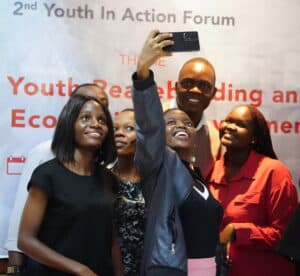
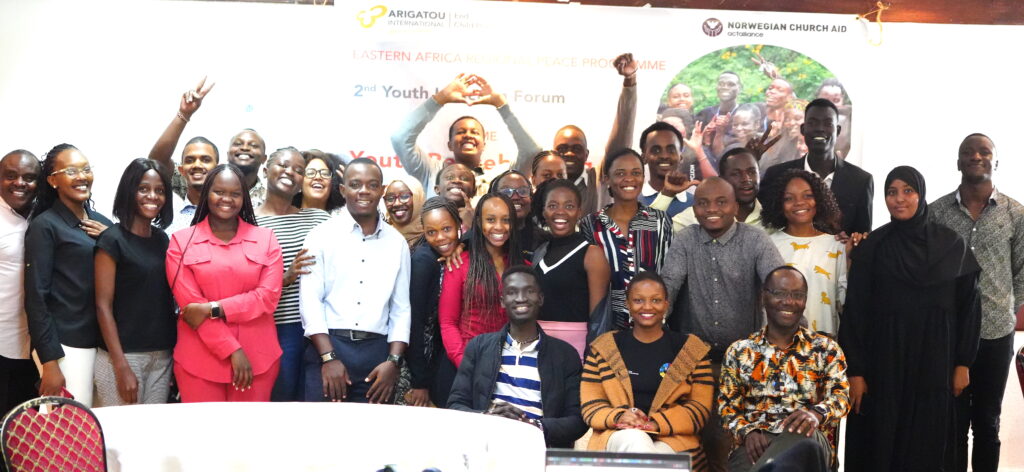
Often, youth lobby for more access to decision making positions and leadership as a step to transforming their role in conflict while neglecting deeper and more meaningful engagement on issues such as economic development and resource governance that would facilitate broader youth development and long-term peace.
It is within this premise that we conceptualized and held the 6thYouth In Action (the second forum under the new cohort) forum in Nairobi, Kenya, from 20th – 24th May 2023. The forum brought together 25 diverse young leaders from 5 countries (Ethiopia, Kenya, South Sudan, Tanzania, and Uganda) discussing the intersection between peacebuilding and youth economic development with an anchor on Freedom of Religion or Belief (FoRB).
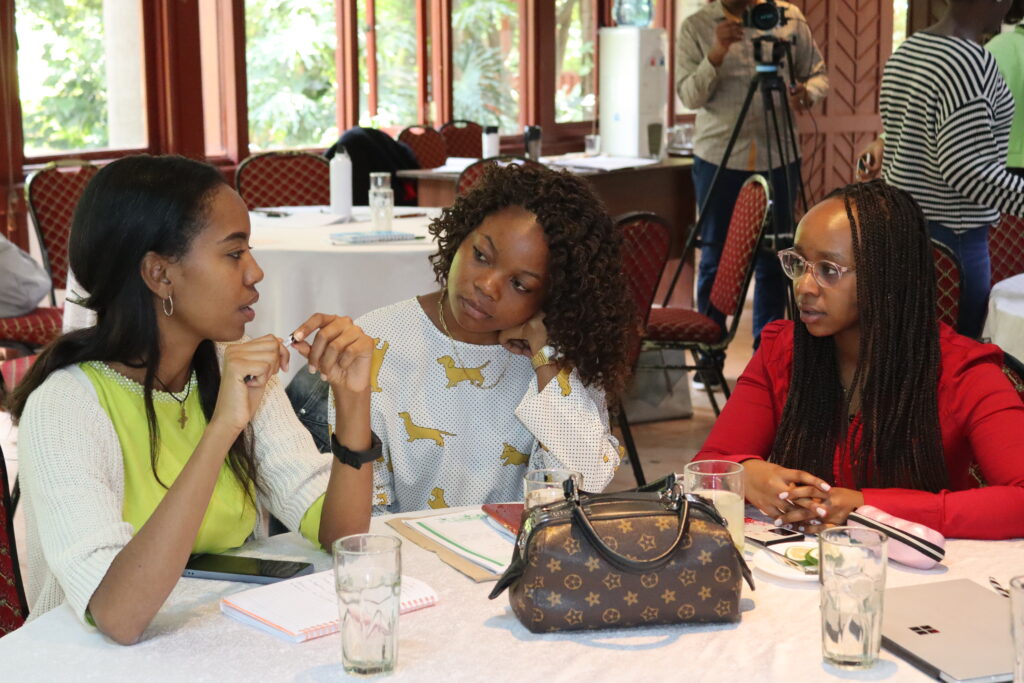
While introducing the 6th Youth In Action, Fred Nyabera, Director of Arigatou International – End Child Poverty lauded the young people for their understanding of FoRB, awareness of issues around FoRB including violation and their proactiveness on social media talking about FoRB. He challenged them to be champions of FoRB think about FoRB as an enabler for peace and a prerequisite for economic development.
“You are not here by accident; you were selected because of your influence as young leaders. You need to stretch your boundaries in thinking about FoRB” he emphasized.
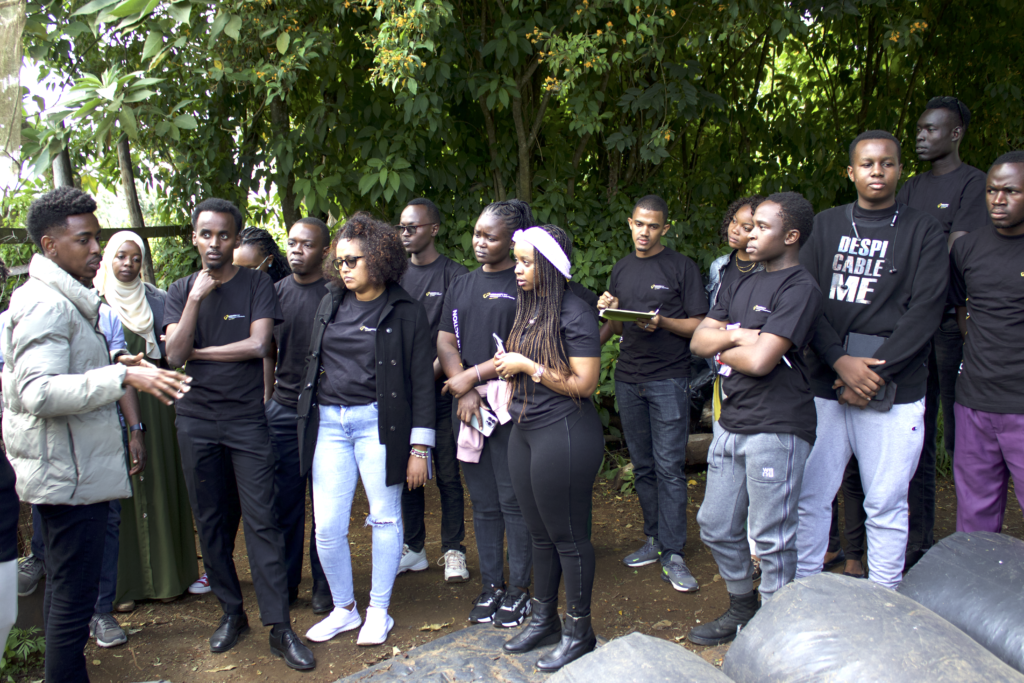
In a bid to practically learn and experience youth economic development, the 25 young people interacted with Tetu farm (a dairy farm ran by young people) and EcoBana (a youth initiative producing eco friendly sanitary pads). This was in a field visit organized by the SDGs Academy for Children, in Limuru, Kenya. Through this experience, the youth were challenged to come up with initiatives and take actions towards economic development by using technology and available resources.
“Don’t work in silos, look for strategic partnerships and use what you have to get what you don’t have” echoed Grace, one of the young people after an exciting experience with young entrepreneurs.
Lennox Omondi, young leader at EcoBana challenged his peers to be innovative even within existing spaces and products in order to find their niche; giving example of their unique sanitary pads made from banana fibers.
“You don’t always have to come up with new solutions to problems. Instead, you can work to improve on existing solutions” Lennox Omondi.
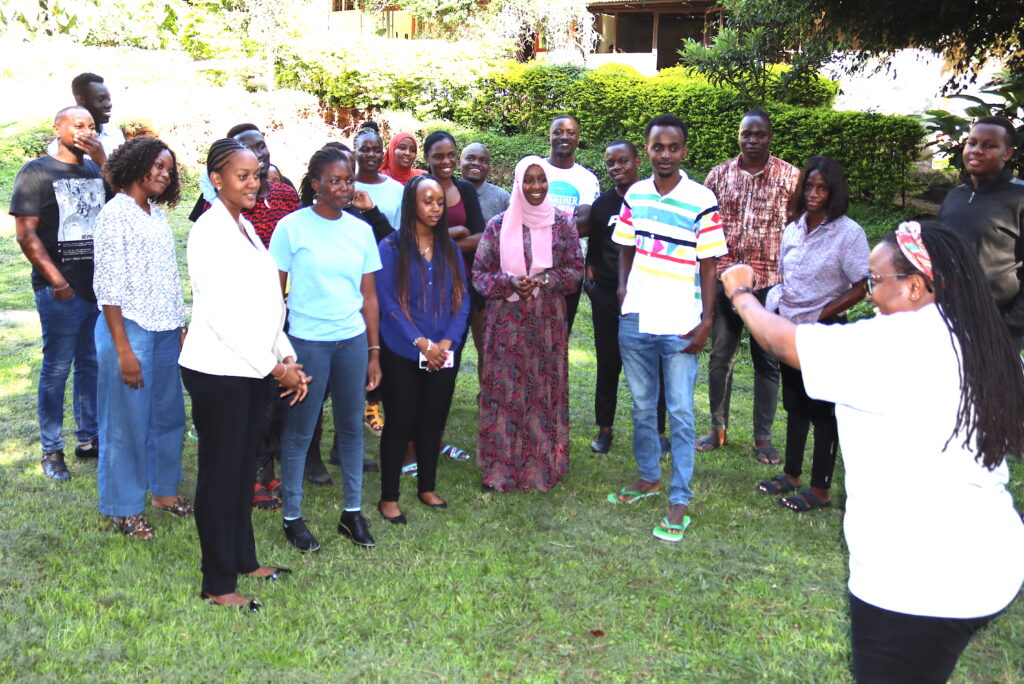
While linking this field experience to FoRB and peacebuilding, Michael Adikwu, the Sustainable Development programme lead at End Child Poverty underscored that FoRB and youth economic development related to peace, adding that for development to happen, there has tom be peace and people have to live in harmony irrespective of their religious background. Michael urged the youth to be creative and meaningfully use technology in efforts to stir up development.
“The same technology used to cause or perpetuate violence can be used for sustainability and development” he emphasized.
In her closing remarks, Maria Osula, manager of the Norwegian Church Aid Eastern Regional Peace Programme (under which Youth In Action is convened) also urged the youth to be creative and impactful in their actions towards peacebuilding.
“I have faced many challenges working on peacebuilding but what motivates me to continue each morning is hearing from different people that I have made a difference in their lives”, she gave an example of herself. The 3-day forum was undoubtedly a unique opportunity to tap into the different experiences of young people in peace building and economic development as well as inspire youth to reflect on opportunities that exist regarding increasing their sources of livelihood and diversifying conflict resolution. This way, the forum positioned itself as an exceptional platform for youth peacebuilding.
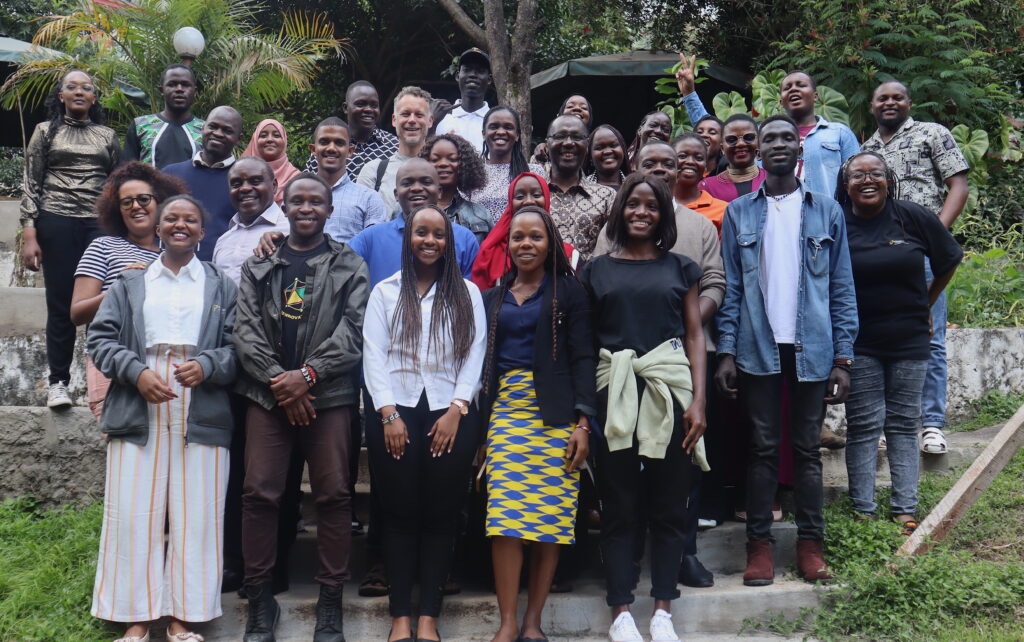
The post Youth Economic Development and Peacebuilding appeared first on End Child Poverty.
The post Youth Economic Development and Peacebuilding appeared first on Arigatou International.
03/05/2023 - The SDGs Academy at the Africa Children Summit

The inaugural Africa Children Summit was not just an ‘attend and go’ summit. It was a platform for children and partnering organization to showcase their work, creativity, and solutions towards creating a better world for children.
With the budding SDGs Academy for Children, Arigatou International could ill-afford to miss this opportunity to promote it’s through the SDGs Academy for Children.
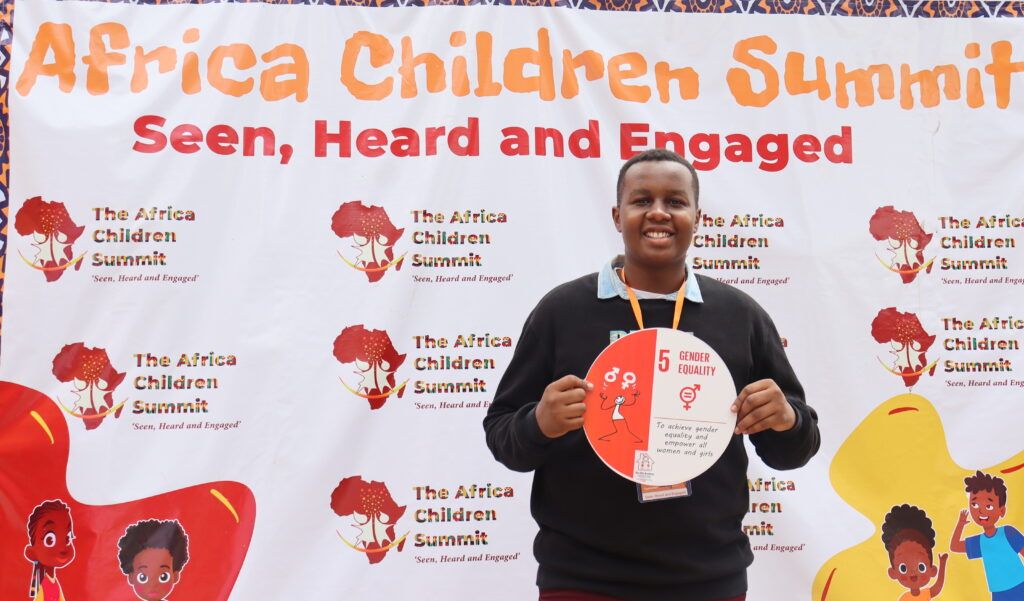
At the summit, we established a child-friendly innovations hub, which took a miniature form of the physical hub of the Academy, complete with the 5 hubs (Knowledge, Dialogue, Capacity, Faith and Fun, Innovations and Solutions) equipped with informative materials corresponding to the hubs.
The innovation hub served not only to portray how a physical space of the Academy looks like but also took participants (both children and adults) through an overview of Arigatou International and what it does with a specific focus on the SDGs Academy for Children.
In droves as well as in their numbers, children as well as adults frequented the innovations space as they were moved by the amazing story and model of the Academy and the breathtaking set up of the space. Further, the array of SDGs related informative materials as well as fun and media related resources pulled participants to the space, with most of them visibly posing for photos with their favorite SDGs, designed as posters.
“It’s very important that as children we start working on the SDGs as soon as possible because they are actually meant for a better future for children. The SDGs should actually be part of our curriculum” Brian, Child, Kenya.
The innovation space further served as hosting space for breakout sessions during the summit, one of which was one media and technology. Children in the session called for the need to have their parents, caregivers and teachers enlightened more on media and technology with regards to best ways to keep children safe on online spaces as well as support them meaningfully use such spaces to learn.
Aside from the innovation hub, we set up a booth through which participants got a first-hand brief about the SDGs Academy for Children among other key areas of Arigatou International.
As we accelerate efforts in promoting the Academy and cementing its footprints and imprints, the Africa Children Summit provided a huge platform towards entrenching the Academy as one of the available meaningful children participation spaces; with the Academy focused on providing a safe space and programme for children’s participation, learning and action on the Sustainable Development Goals (SDGs), and the Agenda 2030 in general.
Arigatou International was one of the 23 partnering organizations for the Africa Children Summit and presented the SDGs Academy for Children as a safe space for children to participate in coming up with solutions to create a better world around them.
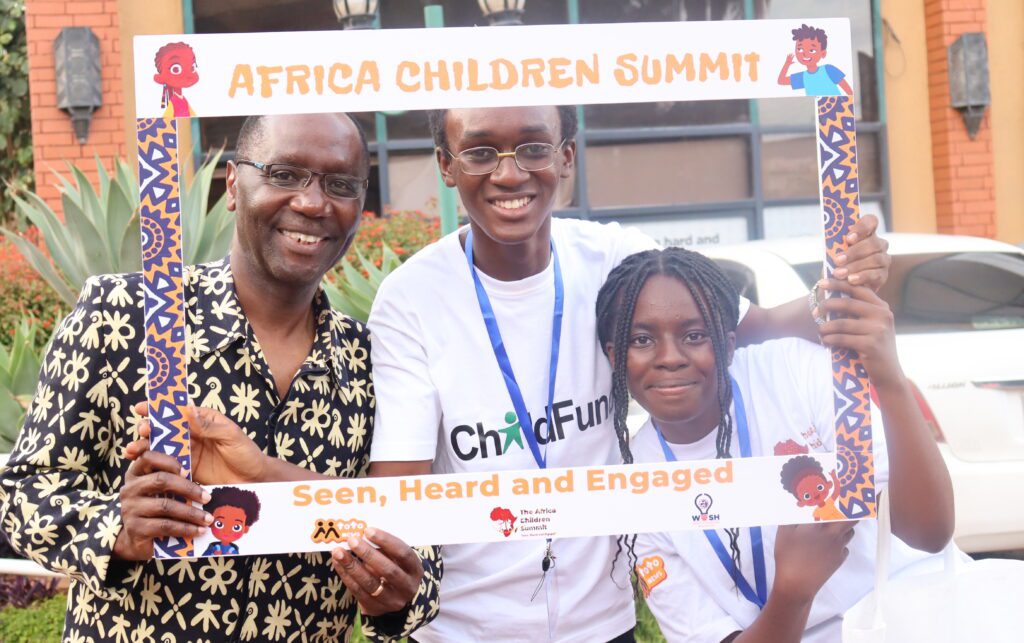
“We at Arigatou International are excited to see the outcomes of this summit, and the impact that your ideas and actions will have on Africa and the world, and we are committed to support your efforts in any way we can – especially though our Arigatou SDGs Academy for Children” expressed Fred Nyabera, Director, Arigatou International – End Child Poverty.
The post The SDGs Academy at the Africa Children Summit appeared first on End Child Poverty.
The post The SDGs Academy at the Africa Children Summit appeared first on Arigatou International.
03/05/2023 - The SDGs Academy at the Africa Children Summit

The inaugural Africa Children Summit was not just an ‘attend and go’ summit. It was a platform for children and partnering organization to showcase their work, creativity, and solutions towards creating a better world for children.
With the budding SDGs Academy for Children, Arigatou International could ill-afford to miss this opportunity to promote it’s through the SDGs Academy for Children.

At the summit, we established a child-friendly innovations hub, which took a miniature form of the physical hub of the Academy, complete with the 5 hubs (Knowledge, Dialogue, Capacity, Faith and Fun, Innovations and Solutions) equipped with informative materials corresponding to the hubs.
The innovation hub served not only to portray how a physical space of the Academy looks like but also took participants (both children and adults) through an overview of Arigatou International and what it does with a specific focus on the SDGs Academy for Children.
In droves as well as in their numbers, children as well as adults frequented the innovations space as they were moved by the amazing story and model of the Academy and the breathtaking set up of the space. Further, the array of SDGs related informative materials as well as fun and media related resources pulled participants to the space, with most of them visibly posing for photos with their favorite SDGs, designed as posters.
“It’s very important that as children we start working on the SDGs as soon as possible because they are actually meant for a better future for children. The SDGs should actually be part of our curriculum” Brian, Child, Kenya.
The innovation space further served as hosting space for breakout sessions during the summit, one of which was one media and technology. Children in the session called for the need to have their parents, caregivers and teachers enlightened more on media and technology with regards to best ways to keep children safe on online spaces as well as support them meaningfully use such spaces to learn.
Aside from the innovation hub, we set up a booth through which participants got a first-hand brief about the SDGs Academy for Children among other key areas of Arigatou International.
As we accelerate efforts in promoting the Academy and cementing its footprints and imprints, the Africa Children Summit provided a huge platform towards entrenching the Academy as one of the available meaningful children participation spaces; with the Academy focused on providing a safe space and programme for children’s participation, learning and action on the Sustainable Development Goals (SDGs), and the Agenda 2030 in general.
Arigatou International was one of the 23 partnering organizations for the Africa Children Summit and presented the SDGs Academy for Children as a safe space for children to participate in coming up with solutions to create a better world around them.

“We at Arigatou International are excited to see the outcomes of this summit, and the impact that your ideas and actions will have on Africa and the world, and we are committed to support your efforts in any way we can – especially though our Arigatou SDGs Academy for Children” expressed Fred Nyabera, Director, Arigatou International – End Child Poverty.
The post The SDGs Academy at the Africa Children Summit appeared first on End Child Poverty.
The post The SDGs Academy at the Africa Children Summit appeared first on Arigatou International.
02/05/2023 - A Space Designed by Children, for Children to be Seen, Heard, and Engaged
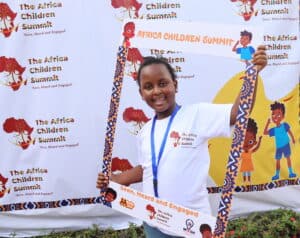
Have you ever attended a forum, session, workshop, or conversation where children are in charge? Chances are, you have not experienced this often or even at all. The inaugural Africa Children Summit, which took place in Nairobi, Kenya from 10th – 12th April, was such unique space entirely designed for and by children to be “Seen, Heard and Engaged”.
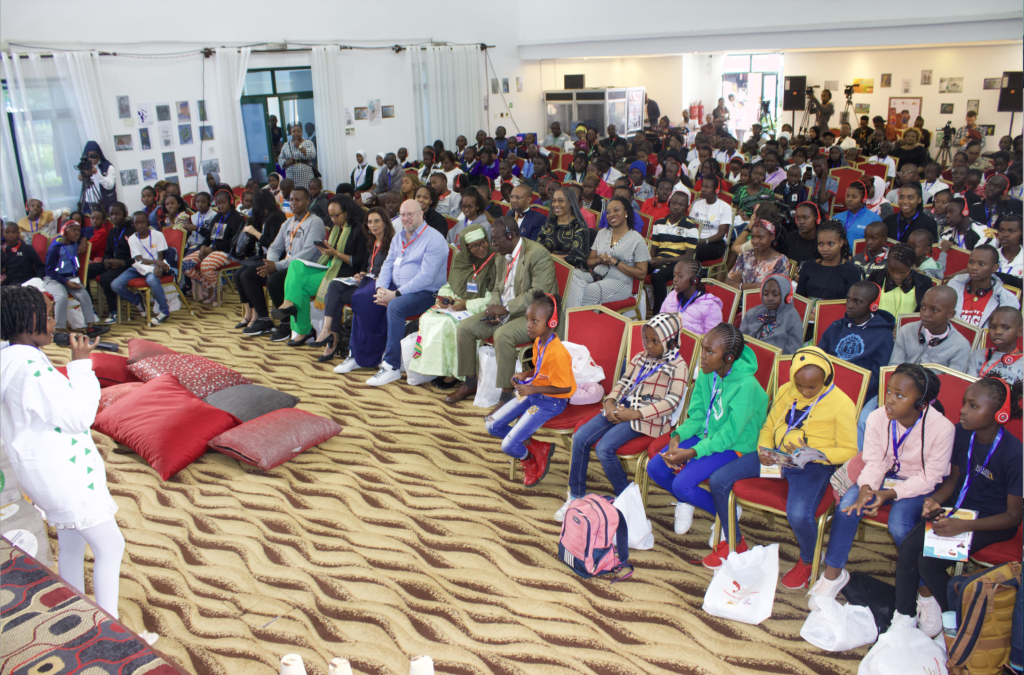
The summit was conceptualized, planned and facilitated by children from across Africa, culminating in a 3-day event that brought together over 250 in-person participants from 9 countries (Mali, Kenya, Rwanda, Sierra Leone, South Africa, Tanzania, Uganda, Zambia and Zimbabwe), and up to 700 virtual participants from a host of countries across Africa and beyond.
“If it is indeed our day then we should participate in organizing it, determining the theme, and working with adults to ensure it is genuinely our day!” expressed Omar, a 17-year-old from Kenya.
Children discussed pertinent matters concerning them, such as education, climate change, violence against children, online child protection, and health, with policy makers and parents/caregivers. They called on governments and other stakeholders to provide sufficient funding and facilities for schools, with special attention to physically challenged children, and emphasized the need to have education available, acceptable, adaptable and equal across Africa.
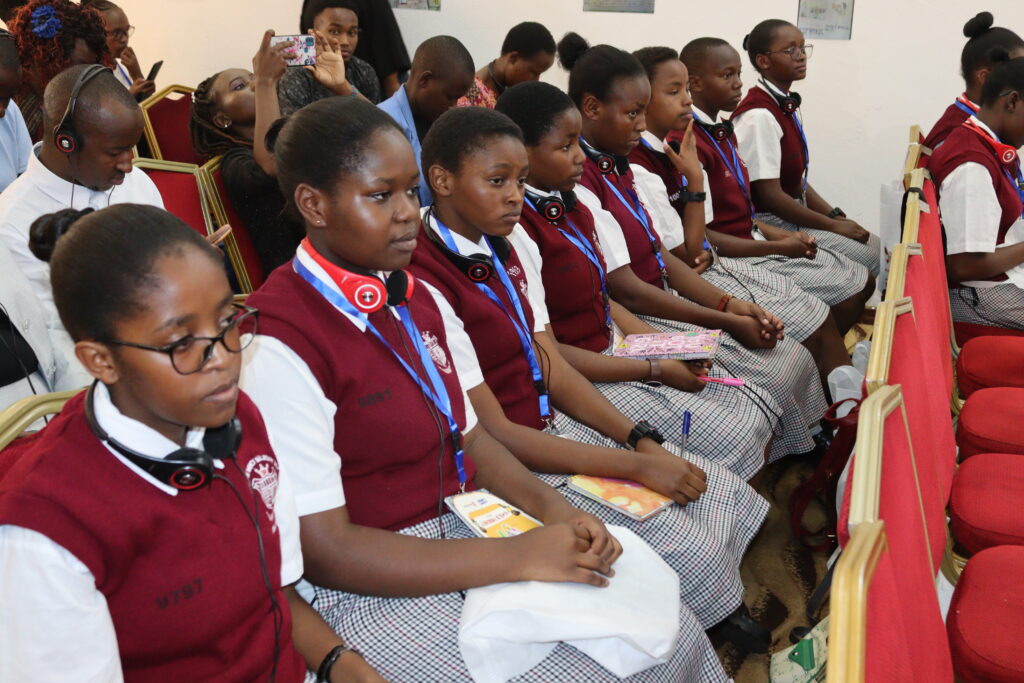
“We need to have gender equality when providing education to all children” expressed Francine, a 16-year-old from Zambia.
Margarate, a child from South Africa, emphasized the need for safe online spaces for children to learn and interact. This echoes the call made by others who advocate for policies and measures to protect children online, rather than discouraging them from using or engaging with online platforms. These advocates point to the essential role that online spaces played in facilitating virtual learning during the COVID-19 pandemic lockdown period, and urge society to prioritize the creation of safe online environments for children.
During a side event focused on ending violence against children, Dr. Najat Maalla, the United Nations Special Representative on Violence Against Children, discussed the issue with attendees. At the event, children expressed their regret that violence against them is still prevalent, even in what should be safe spaces such as homes and schools.
Upendo, a child from Kenya, highlighted that emotional violence can be just as damaging as physical violence and stressed the need for emotional and psychological care.
Dr. Najat contributed to the discussion by revealing that violence against children was a widespread issue that involves harmful cultural practices still present in Africa. She emphasized the need for a comprehensive approach to addressing this problem, one that involves empowering and involving children, communities, religious and traditional leaders in advocating for change and monitoring the actions of governments.
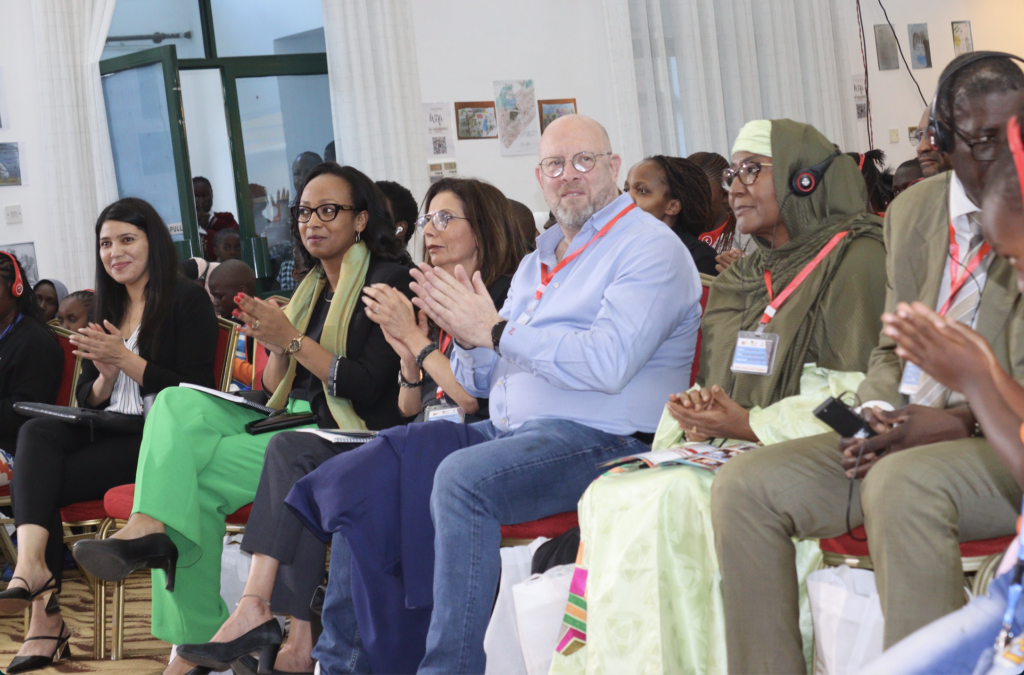
Contributing to this subject was Dr. Mustafa Y. Ali; Secretary General of Arigatou International’s Global Network of Religions for Children (GNRC) who shared that Arigatou International uses religion as a resource to focus on the challenges and practices that undermine, and promote the rights of children.
The children highlighted that violence among them was still rampant, even in what are supposed to be safe spaces for them like homes and schools. They stressed the need for emotional and psychological care, and for policies and measures to be put in place to address violence against children broadly.
Arigatou International was one of the 23 partnering organizations for the Africa Children Summit and presented the SDGs Academy for Children as a safe space for children to participate in coming up with solutions to create a better world around them.
“We at Arigatou International are excited to see the outcomes of this summit, and the impact that your ideas and actions will have on Africa and the world, and we are committed to support your efforts in any way we can – especially though our Arigatou SDGs Academy for Children” expressed Fred Nyabera, Director, Arigatou International – End Child Poverty. The summit concluded with children handing over a position paper with recommendations to policy makers and government officials. The recommendations highlighted key action areas on the thematic areas discussed by children in the summit.
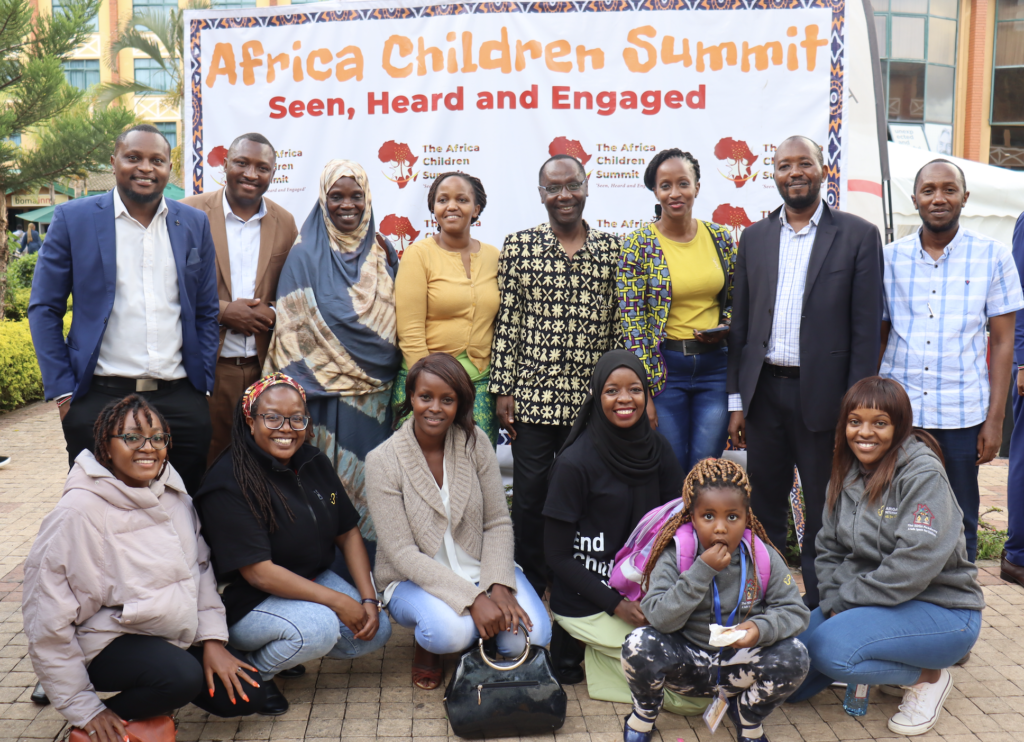
The post A Space Designed by Children, for Children to be Seen, Heard, and Engaged appeared first on End Child Poverty.
The post A Space Designed by Children, for Children to be Seen, Heard, and Engaged appeared first on Arigatou International.
02/05/2023 - A Space Designed by Children, for Children to be Seen, Heard, and Engaged

Have you ever attended a forum, session, workshop, or conversation where children are in charge? Chances are, you have not experienced this often or even at all. The inaugural Africa Children Summit, which took place in Nairobi, Kenya from 10th – 12th April, was such unique space entirely designed for and by children to be “Seen, Heard and Engaged”.

The summit was conceptualized, planned and facilitated by children from across Africa, culminating in a 3-day event that brought together over 250 in-person participants from 9 countries (Mali, Kenya, Rwanda, Sierra Leone, South Africa, Tanzania, Uganda, Zambia and Zimbabwe), and up to 700 virtual participants from a host of countries across Africa and beyond.
“If it is indeed our day then we should participate in organizing it, determining the theme, and working with adults to ensure it is genuinely our day!” expressed Omar, a 17-year-old from Kenya.
Children discussed pertinent matters concerning them, such as education, climate change, violence against children, online child protection, and health, with policy makers and parents/caregivers. They called on governments and other stakeholders to provide sufficient funding and facilities for schools, with special attention to physically challenged children, and emphasized the need to have education available, acceptable, adaptable and equal across Africa.

“We need to have gender equality when providing education to all children” expressed Francine, a 16-year-old from Zambia.
Margarate, a child from South Africa, emphasized the need for safe online spaces for children to learn and interact. This echoes the call made by others who advocate for policies and measures to protect children online, rather than discouraging them from using or engaging with online platforms. These advocates point to the essential role that online spaces played in facilitating virtual learning during the COVID-19 pandemic lockdown period, and urge society to prioritize the creation of safe online environments for children.
During a side event focused on ending violence against children, Dr. Najat Maalla, the United Nations Special Representative on Violence Against Children, discussed the issue with attendees. At the event, children expressed their regret that violence against them is still prevalent, even in what should be safe spaces such as homes and schools.
Upendo, a child from Kenya, highlighted that emotional violence can be just as damaging as physical violence and stressed the need for emotional and psychological care.
Dr. Najat contributed to the discussion by revealing that violence against children was a widespread issue that involves harmful cultural practices still present in Africa. She emphasized the need for a comprehensive approach to addressing this problem, one that involves empowering and involving children, communities, religious and traditional leaders in advocating for change and monitoring the actions of governments.

Contributing to this subject was Dr. Mustafa Y. Ali; Secretary General of Arigatou International’s Global Network of Religions for Children (GNRC) who shared that Arigatou International uses religion as a resource to focus on the challenges and practices that undermine, and promote the rights of children.
The children highlighted that violence among them was still rampant, even in what are supposed to be safe spaces for them like homes and schools. They stressed the need for emotional and psychological care, and for policies and measures to be put in place to address violence against children broadly.
Arigatou International was one of the 23 partnering organizations for the Africa Children Summit and presented the SDGs Academy for Children as a safe space for children to participate in coming up with solutions to create a better world around them.
“We at Arigatou International are excited to see the outcomes of this summit, and the impact that your ideas and actions will have on Africa and the world, and we are committed to support your efforts in any way we can – especially though our Arigatou SDGs Academy for Children” expressed Fred Nyabera, Director, Arigatou International – End Child Poverty. The summit concluded with children handing over a position paper with recommendations to policy makers and government officials. The recommendations highlighted key action areas on the thematic areas discussed by children in the summit.

The post A Space Designed by Children, for Children to be Seen, Heard, and Engaged appeared first on End Child Poverty.
The post A Space Designed by Children, for Children to be Seen, Heard, and Engaged appeared first on Arigatou International.
15/03/2023 - Robotics for Sustainable Development
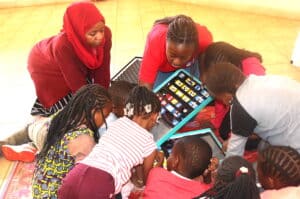
Science, Technology, Engineering, and Mathematics (STEM) are central to accelerating achievement of United Nations Agenda 2030 and particularly the Sustainable Development Goals (SDGs). The UN recognizes technology as a cross-cutting ‘means of implementation,’ underpinning the achievement of every goal.
Recognizing the centrality of STEM, the Arigatou International SDGs Academy for Children in partnership with the Kenya Flying Labs facilitated a 3-part learning series on Robotics and Sustainable Development. This learning sessions involved 27 children accompanied with parents, caregivers, and teachers at the Academy’s physical hub in Limuru, Kenya.
The learning sessions used the Twin Science Curriculum by WeRobotics to introduce the children to robotics, life sciences, coding and how they could develop robots to aid in actions towards implementing the SDGs.
“I have learnt that robotics is important in our lives; for example, in treating patients in hospitals” Jonathan, 10-year-old participant.
Throughout the sessions, children were enlightened on how science and technology was important towards achieving the SDGs and how they could use available technology and through knowledge gained to contribute to that achievement.
Activities during the learning and practical sessions involved building knowledge about robotics as part of STEM, how to make robots, how they work, coding and operating household robots and drones. Extra learning activities like outdoor games and watching movies such as “the boy who harnessed the wind” to discuss SDGs 1 (No Poverty), 2 (Zero Hunger), 4 (Quality Education), 6 (Clean Water & Sanitation), 7 (Clean and Affordable Energy), and 13 (Climate Action) further made it easier and fascinating in entrenching the skills gained with regards to actualizing the SDGs.
“The SDGs Academy for Children prides in providing a safe space for children in building a sustainably developed worlds for all children” Michael Adikwu, Lead, SDGs Academy for Children, Arigatou International.
The Arigatou International SDGs Academy for Children uses the Global Development Education (GDE) and Transformative Pedagogy methods to deliver learning, skills and practical actions for children to internalize and contribute towards implementation of the SDGs.
Prior to this 3-part learning sessions, we have been partnering with the Kenya Flying Labs in delivering similar tech-oriented trainings for children at the Academy. We are also partnering with the Kenya Flying Labs in establishing SDGs Clubs in schools in Kenya.
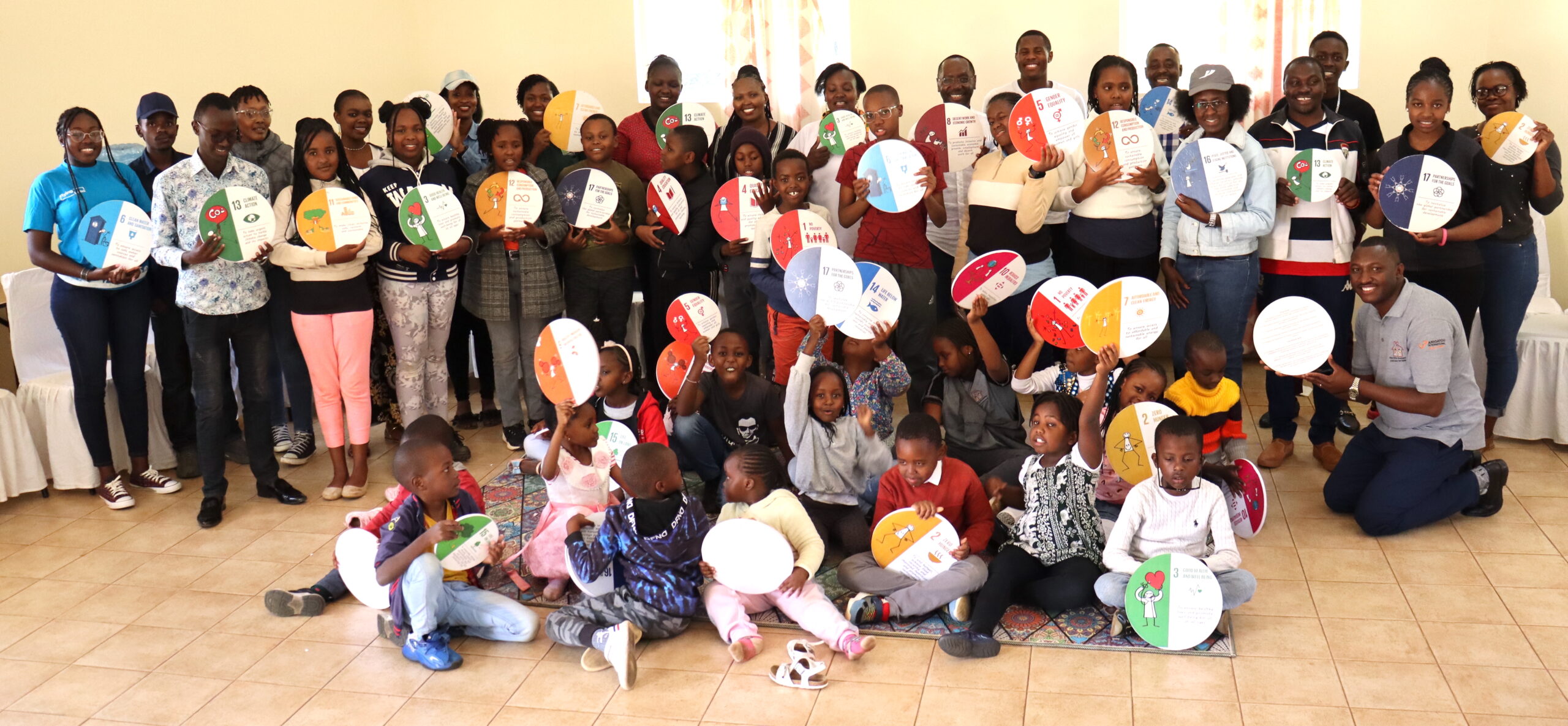
The post <strong>Robotics for Sustainable Development</strong> appeared first on End Child Poverty.
The post Robotics for Sustainable Development appeared first on Arigatou International.
15/03/2023 - Robotics for Sustainable Development

Science, Technology, Engineering, and Mathematics (STEM) are central to accelerating achievement of United Nations Agenda 2030 and particularly the Sustainable Development Goals (SDGs). The UN recognizes technology as a cross-cutting ‘means of implementation,’ underpinning the achievement of every goal.
Recognizing the centrality of STEM, the Arigatou International SDGs Academy for Children in partnership with the Kenya Flying Labs facilitated a 3-part learning series on Robotics and Sustainable Development. This learning sessions involved 27 children accompanied with parents, caregivers, and teachers at the Academy’s physical hub in Limuru, Kenya.
The learning sessions used the Twin Science Curriculum by WeRobotics to introduce the children to robotics, life sciences, coding and how they could develop robots to aid in actions towards implementing the SDGs.
“I have learnt that robotics is important in our lives; for example, in treating patients in hospitals” Jonathan, 10-year-old participant.
Throughout the sessions, children were enlightened on how science and technology was important towards achieving the SDGs and how they could use available technology and through knowledge gained to contribute to that achievement.
Activities during the learning and practical sessions involved building knowledge about robotics as part of STEM, how to make robots, how they work, coding and operating household robots and drones. Extra learning activities like outdoor games and watching movies such as “the boy who harnessed the wind” to discuss SDGs 1 (No Poverty), 2 (Zero Hunger), 4 (Quality Education), 6 (Clean Water & Sanitation), 7 (Clean and Affordable Energy), and 13 (Climate Action) further made it easier and fascinating in entrenching the skills gained with regards to actualizing the SDGs.
“The SDGs Academy for Children prides in providing a safe space for children in building a sustainably developed worlds for all children” Michael Adikwu, Lead, SDGs Academy for Children, Arigatou International.
The Arigatou International SDGs Academy for Children uses the Global Development Education (GDE) and Transformative Pedagogy methods to deliver learning, skills and practical actions for children to internalize and contribute towards implementation of the SDGs.
Prior to this 3-part learning sessions, we have been partnering with the Kenya Flying Labs in delivering similar tech-oriented trainings for children at the Academy. We are also partnering with the Kenya Flying Labs in establishing SDGs Clubs in schools in Kenya.

The post <strong>Robotics for Sustainable Development</strong> appeared first on End Child Poverty.
The post Robotics for Sustainable Development appeared first on Arigatou International.
10/03/2023 - The Rights of the Child and the Digital Environment – A Statement at the 52nd Session of the Human Rights Council
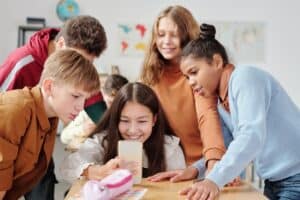
Arigatou International joined the United Nations Committee on the Rights of the Child to call for the inclusion of religious leaders and parents in training about the rights of children in the digital environment and to collaborate with them.
The statement was delivered by Ms. Emma Nowotny, Child Rights Program Officer, on 10 March 2023, during the Annual Day on Children’s Rights at the 52nd session of the Human Rights Council.
This year, the theme of the Annual Day was The Rights of the Child and the Digital Environment. Through the statement, Arigatou International called on governments, decision-makers and civil society to “invest in educational programs and spaces that empower children to take an active role in the digital environment and become positive influencers among peers.”
Human Rights Council 52nd session
Annual Discussions on the Rights of the Child
10 March 2023
Distinguished panelists,
Arigatou International welcomes the discussions on child rights and the digital environment and the important views and recommendations that children shared.In line with General comment No. 25 (2021), we call for a holistic approach to maximize the benefits and minimize the risks that the digital environment presents, to ensure that violence against children is addressed properly and mitigated.
Legal protection is crucial for a safe digital environment, but we must also prioritize combating the normalization and stigma of online violence and its intersection with other types of violence.We, therefore, call on governments, decision-makers and civil society to:
1. Develop training for those closest to children and with the moral authority to intervene and support, namely religious leaders, parents, caregivers and educators to learn about the rights of children in the digital environment, understand the risks and linkages with other violence, recognize the early signs of child’s victimization, and reporting mechanisms. We call particular attention to the role of religious leaders in many parts of the world, who are well-positioned to influence their believers and protect children. Religious communities are the largest and most connected grassroots organizations in the world, and with an immense potential to support and influence social change.2. Invest in educational programs and spaces that empower children to take an active role in the digital environment and become positive influencers among peers. This requires providing them with the space to take joint action to address hate speech and the spread of extreme ideologies, protect themselves against violence and abuse, speak up for others, and understand their rights, including in the digital environment. Ethics education programs that support the development of critical thinking, intercultural and interreligious competencies, and foster empathy and individual and collective responsibilities, have proved effective in empowering children and youth as agents of change.
To conclude, we invite all States and organizations present here to use a multi-sectoral approach to create synergies to develop more effective mechanisms to protect and empower children. It is our ethical responsibility to move beyond working in silos and collaborate.
Thank you
Arigatou International
The post The Rights of the Child and the Digital Environment – A Statement at the 52nd Session of the Human Rights Council appeared first on Ethics Education for Children.
The post The Rights of the Child and the Digital Environment – A Statement at the 52nd Session of the Human Rights Council appeared first on Arigatou International.
10/03/2023 - The Rights of the Child and the Digital Environment – A Statement at the 52nd Session of the Human Rights Council

Arigatou International joined the United Nations Committee on the Rights of the Child to call for the inclusion of religious leaders and parents in training about the rights of children in the digital environment and to collaborate with them.
The statement was delivered by Ms. Emma Nowotny, Child Rights Program Officer, on 10 March 2023, during the Annual Day on Children’s Rights at the 52nd session of the Human Rights Council.
This year, the theme of the Annual Day was The Rights of the Child and the Digital Environment. Through the statement, Arigatou International called on governments, decision-makers and civil society to “invest in educational programs and spaces that empower children to take an active role in the digital environment and become positive influencers among peers.”
Human Rights Council 52nd session
Annual Discussions on the Rights of the Child
10 March 2023
Distinguished panelists,
Arigatou International welcomes the discussions on child rights and the digital environment and the important views and recommendations that children shared.In line with General comment No. 25 (2021), we call for a holistic approach to maximize the benefits and minimize the risks that the digital environment presents, to ensure that violence against children is addressed properly and mitigated.
Legal protection is crucial for a safe digital environment, but we must also prioritize combating the normalization and stigma of online violence and its intersection with other types of violence.We, therefore, call on governments, decision-makers and civil society to:
1. Develop training for those closest to children and with the moral authority to intervene and support, namely religious leaders, parents, caregivers and educators to learn about the rights of children in the digital environment, understand the risks and linkages with other violence, recognize the early signs of child’s victimization, and reporting mechanisms. We call particular attention to the role of religious leaders in many parts of the world, who are well-positioned to influence their believers and protect children. Religious communities are the largest and most connected grassroots organizations in the world, and with an immense potential to support and influence social change.2. Invest in educational programs and spaces that empower children to take an active role in the digital environment and become positive influencers among peers. This requires providing them with the space to take joint action to address hate speech and the spread of extreme ideologies, protect themselves against violence and abuse, speak up for others, and understand their rights, including in the digital environment. Ethics education programs that support the development of critical thinking, intercultural and interreligious competencies, and foster empathy and individual and collective responsibilities, have proved effective in empowering children and youth as agents of change.
To conclude, we invite all States and organizations present here to use a multi-sectoral approach to create synergies to develop more effective mechanisms to protect and empower children. It is our ethical responsibility to move beyond working in silos and collaborate.
Thank you
Arigatou International
The post The Rights of the Child and the Digital Environment – A Statement at the 52nd Session of the Human Rights Council appeared first on Ethics Education for Children.
The post The Rights of the Child and the Digital Environment – A Statement at the 52nd Session of the Human Rights Council appeared first on Arigatou International.
08/03/2023 - Young women leading innovative solutions to overcome child poverty.
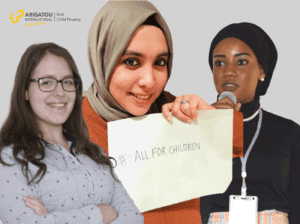
Every year, the world commemorates the International Women’s Day (March 8) to recognise the achievements and contribution of women towards creating a better world. Today, the world is faced with a multiplicity of crises, and this only calls for inclusive approaches towards addressing these crises, including child poverty.
Recognising the vital role they play in securing children’s wellbeing and dignity, we work with women leaders from diverse contexts towards creating a world free of child poverty. These women lead and promote innovative solutions aimed at addressing the root causes of child poverty.
In celebrating this year’s International Women’s Day, we cast a spotlight on three young women at the forefront of such innovative solutions to address child poverty.
Shazmin Rafeeq, I CAN Malaysia
Shazmin’s leadership: A community centre to serve children, particularly Rohingya children living as refugees in Kuala Lumpur, Malaysia.
I CAN Malaysia (founded by Shazmin) established a community learning center – the Darul eslah Academy – that provides basic nutrition, non-formal and social skills education to the children living as refugees, as well as volunteer opportunities for university students and other members of the community. Further, I CAN Malaysia, collaborates with several Madrassas to provide psycho-social support to the children, in addition to religious education and nurturing spirituality and positive values. Shazmin has been instrumental in leading these processes and working with other young people to act.
“We believe in the philosophy “Give a man a fish, and you feed him for a day; show him how to catch fish, and you feed him for a lifetime.” The focus of ICAN Malaysia is not only to help people living in or affected by poverty with their basic needs; but also to make them self-reliant by providing required training and guidance accordingly. Instead of considering poor people as burden or liability for the society, with our help, training, assistance and guidance each individual can start contributing to the society in every aspect.”
Zvonmira Jakić, GNRC (Global Network of Religions for Children) Bosnia and Herzegovina
Zvonmira’s leadership: Advocacy and social entrepreneurship.
Zvonimira Jakić is the youth coordinator for the Global Network of Religions for Children (GNRC) in Bosnia and Herzegovina and a youth advisor of the Presidency of Bosnia and Herzegovina, among other key leadership roles. Zvonmira is also a champion of promoting children’s education, forming a global program for tutoring for children in vulenrable circumstances. A receipient of the 2019 SEEBA “Best Young Entrepreneur” Award for the startup “Green Solutions” for innovation in agriculture digitalization, Zvonmira’s work epitomizes this year’s International Women’s Day theme, “DigitALL: Innovation and Technology for Gender Equality.”
“Changemaker (is) the word which explains me the best … I am mentoring several university and high school students around the globe (focusing) on Bosnia and Herzegovina, where I teach and mentor them to become future leaders and changemakers of the world. My motto for change and work is: “INSPIRE.ACT.CHANGE!” … My biggest success is when I see that one of my students made a positive CHANGE in the globe.”
*Zvonmira’s quote is from an interview with the European Democracy Youth Network (EYDN). Read Zvonmira’s full interview ‘Everyday Heros’ responses by the EYDN, here
Haoua Dicko, REJADH (Réseau des Enfants et Jeunes Africains pour les Droits Humains), Mali
Haoua’s leadership: Community mobilisation and youth-led advocacy for human rights and addressing gender-based violence (GBV)
Haoua has been part of the leadership of the REJADH network, spearheading grassroots advocacy work in Mali. REJADH (African Children and Youth Network for Human Rights/Réseau des Enfants et Jeunes Africains pour les Droits Humains) was established as a platform for advocacy by and for young people from 5 countries (Burundi, the Democratic Republic of Congo (DRC), Mali, South Sudan and Somalia) often affected by conflict, poverty, and Gender-Based Violence (GBV). Through this program, we sought to empower young leaders (youth, youth influencers, and young adults) with the necessary skills to help them reduce, prevent, and end gender-based violence and its negative effects on young people and the community at large. Since inception, REJADH has reached more than 5,000 children and youth through direct advocacy efforts. Similarly, its online reach has been overwhelming through the REJADH social media spaces.
“As a member of REJADH since its creation in October 2016 in Addis Ababa, Ethiopia, I can say that REJADH has had a very positive impact in my life, starting with this feeling of being useful in my community. I am now able to serve as a positive example and role model for other young Africans, and more particularly for my Malian brothers and sisters. I am committed to living with a lot of devotion and contribute more to the development of my continent. I believe this piece of wisdom, “the man who fights for others is better than the one who fights for himself”. The fight continues until it succeeds.
Happy International Women’s Day!
The post <strong>Young women leading innovative solutions to overcome child poverty.</strong> appeared first on End Child Poverty.
The post Young women leading innovative solutions to overcome child poverty. appeared first on Arigatou International.
08/03/2023 - Young women leading innovative solutions to overcome child poverty.

Every year, the world commemorates the International Women’s Day (March 8) to recognise the achievements and contribution of women towards creating a better world. Today, the world is faced with a multiplicity of crises, and this only calls for inclusive approaches towards addressing these crises, including child poverty.
Recognising the vital role they play in securing children’s wellbeing and dignity, we work with women leaders from diverse contexts towards creating a world free of child poverty. These women lead and promote innovative solutions aimed at addressing the root causes of child poverty.
In celebrating this year’s International Women’s Day, we cast a spotlight on three young women at the forefront of such innovative solutions to address child poverty.
Shazmin Rafeeq, I CAN Malaysia
Shazmin’s leadership: A community centre to serve children, particularly Rohingya children living as refugees in Kuala Lumpur, Malaysia.
I CAN Malaysia (founded by Shazmin) established a community learning center – the Darul eslah Academy – that provides basic nutrition, non-formal and social skills education to the children living as refugees, as well as volunteer opportunities for university students and other members of the community. Further, I CAN Malaysia, collaborates with several Madrassas to provide psycho-social support to the children, in addition to religious education and nurturing spirituality and positive values. Shazmin has been instrumental in leading these processes and working with other young people to act.
“We believe in the philosophy “Give a man a fish, and you feed him for a day; show him how to catch fish, and you feed him for a lifetime.” The focus of ICAN Malaysia is not only to help people living in or affected by poverty with their basic needs; but also to make them self-reliant by providing required training and guidance accordingly. Instead of considering poor people as burden or liability for the society, with our help, training, assistance and guidance each individual can start contributing to the society in every aspect.”
Zvonmira Jakić, GNRC (Global Network of Religions for Children) Bosnia and Herzegovina
Zvonmira’s leadership: Advocacy and social entrepreneurship.
Zvonimira Jakić is the youth coordinator for the Global Network of Religions for Children (GNRC) in Bosnia and Herzegovina and a youth advisor of the Presidency of Bosnia and Herzegovina, among other key leadership roles. Zvonmira is also a champion of promoting children’s education, forming a global program for tutoring for children in vulenrable circumstances. A receipient of the 2019 SEEBA “Best Young Entrepreneur” Award for the startup “Green Solutions” for innovation in agriculture digitalization, Zvonmira’s work epitomizes this year’s International Women’s Day theme, “DigitALL: Innovation and Technology for Gender Equality.”
“Changemaker (is) the word which explains me the best … I am mentoring several university and high school students around the globe (focusing) on Bosnia and Herzegovina, where I teach and mentor them to become future leaders and changemakers of the world. My motto for change and work is: “INSPIRE.ACT.CHANGE!” … My biggest success is when I see that one of my students made a positive CHANGE in the globe.”
*Zvonmira’s quote is from an interview with the European Democracy Youth Network (EYDN). Read Zvonmira’s full interview ‘Everyday Heros’ responses by the EYDN, here
Haoua Dicko, REJADH (Réseau des Enfants et Jeunes Africains pour les Droits Humains), Mali
Haoua’s leadership: Community mobilisation and youth-led advocacy for human rights and addressing gender-based violence (GBV)
Haoua has been part of the leadership of the REJADH network, spearheading grassroots advocacy work in Mali. REJADH (African Children and Youth Network for Human Rights/Réseau des Enfants et Jeunes Africains pour les Droits Humains) was established as a platform for advocacy by and for young people from 5 countries (Burundi, the Democratic Republic of Congo (DRC), Mali, South Sudan and Somalia) often affected by conflict, poverty, and Gender-Based Violence (GBV). Through this program, we sought to empower young leaders (youth, youth influencers, and young adults) with the necessary skills to help them reduce, prevent, and end gender-based violence and its negative effects on young people and the community at large. Since inception, REJADH has reached more than 5,000 children and youth through direct advocacy efforts. Similarly, its online reach has been overwhelming through the REJADH social media spaces.
“As a member of REJADH since its creation in October 2016 in Addis Ababa, Ethiopia, I can say that REJADH has had a very positive impact in my life, starting with this feeling of being useful in my community. I am now able to serve as a positive example and role model for other young Africans, and more particularly for my Malian brothers and sisters. I am committed to living with a lot of devotion and contribute more to the development of my continent. I believe this piece of wisdom, “the man who fights for others is better than the one who fights for himself”. The fight continues until it succeeds.
Happy International Women’s Day!
The post <strong>Young women leading innovative solutions to overcome child poverty.</strong> appeared first on End Child Poverty.
The post Young women leading innovative solutions to overcome child poverty. appeared first on Arigatou International.
06/03/2023 - Our journey with Children Empowerment Centre – Meethotamulla, Sri Lanka
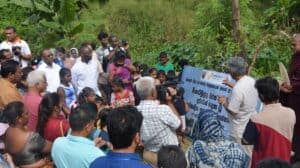
On the evening of Sinhala and Hindu New Year April 2014, it was a festive day for all Sri Lankans. The garbage dump collapsed in Meethotamulla, Kolonnawa., claiming 38 lives and 180 families were displaced and the affected provided with temporary shelter in Kolonnawa and nearby community centers.
The affected families were relocated into a housing scheme named “Sanhida Sewana” in Kolonnawa area. Most of the families had low-income levels and most families live in poverty. After the garbage collapse, the children’s lives in Meethotamulla became more challenging.
Perturbed by the conditions of these children especially the challenge with them receiving education, Arigatou International – End Child Poverty in collaboration with the Sarvodaya Shramadana Movement established an education center (also Children’s Empowerment Centre) in December 2018 during the “End Child Poverty and the Global Network of Religions for Children (GNRC) Southeast Asia Regional Meetings” in Sri Lanka.
Since inception, this center has been providing coaching classes for all children. There’s a growth in the number of children that join this class since some parents have seen a change in their children’s exam marks and interest in attending schools and shared their thoughts with other parents. Today, 50 Children attend coaching classes, and 4 voluntary teachers attend two days a week to teach these children. Subjects such as Mathematics, Sinhala, Tamil, English language and general knowledge classes are taught. As a result of the classes offered at the Centre, children from Meethotamulla have been passing their grade 5 exams and have gone to better schools within the district. Further, many students have passed the ordinary level exams and most of them have been selected to technical colleges.
The Children empowerment center will further support children until they complete their secondary education and will provide knowledge to children on essential life skills such as leadership skills, communication skills and critical thinking. There was established need to also teach the children some ethics education The voluntary teachers who visit for coaching classes also cover this kind of lesson for children’s well-being.
On January 21st, 2023, the End Child poverty Knowledge Center organized a small event and visited the center with voluntary teachers. The day was planned with fun-based activities, and storytelling to motivate children and let them understand the value of education. At the end of the session, stationaries were distributed among the children as an appreciation for receiving good marks in the school term exam last year and for continuously joining the classroom, In Sri Lanka’s economic crisis, exercise books and other stationery items price hiked, and these parents couldn’t afford them. The End child poverty Knowledge center is planning to establish a library for the children to borrow books weekly basis so it’ll not only help to improve their reading skills but will also let them see the world and understand the values that they should include in their lives. A change in a single child can lead to a change in many children.
The post Our journey with Children Empowerment Centre – Meethotamulla, Sri Lanka appeared first on End Child Poverty.
The post Our journey with Children Empowerment Centre – Meethotamulla, Sri Lanka appeared first on Arigatou International.
06/03/2023 - Our journey with Children Empowerment Centre – Meethotamulla, Sri Lanka

On the evening of Sinhala and Hindu New Year April 2014, it was a festive day for all Sri Lankans. The garbage dump collapsed in Meethotamulla, Kolonnawa., claiming 38 lives and 180 families were displaced and the affected provided with temporary shelter in Kolonnawa and nearby community centers.
The affected families were relocated into a housing scheme named “Sanhida Sewana” in Kolonnawa area. Most of the families had low-income levels and most families live in poverty. After the garbage collapse, the children’s lives in Meethotamulla became more challenging.
Perturbed by the conditions of these children especially the challenge with them receiving education, Arigatou International – End Child Poverty in collaboration with the Sarvodaya Shramadana Movement established an education center (also Children’s Empowerment Centre) in December 2018 during the “End Child Poverty and the Global Network of Religions for Children (GNRC) Southeast Asia Regional Meetings” in Sri Lanka.
Since inception, this center has been providing coaching classes for all children. There’s a growth in the number of children that join this class since some parents have seen a change in their children’s exam marks and interest in attending schools and shared their thoughts with other parents. Today, 50 Children attend coaching classes, and 4 voluntary teachers attend two days a week to teach these children. Subjects such as Mathematics, Sinhala, Tamil, English language and general knowledge classes are taught. As a result of the classes offered at the Centre, children from Meethotamulla have been passing their grade 5 exams and have gone to better schools within the district. Further, many students have passed the ordinary level exams and most of them have been selected to technical colleges.
The Children empowerment center will further support children until they complete their secondary education and will provide knowledge to children on essential life skills such as leadership skills, communication skills and critical thinking. There was established need to also teach the children some ethics education The voluntary teachers who visit for coaching classes also cover this kind of lesson for children’s well-being.
On January 21st, 2023, the End Child poverty Knowledge Center organized a small event and visited the center with voluntary teachers. The day was planned with fun-based activities, and storytelling to motivate children and let them understand the value of education. At the end of the session, stationaries were distributed among the children as an appreciation for receiving good marks in the school term exam last year and for continuously joining the classroom, In Sri Lanka’s economic crisis, exercise books and other stationery items price hiked, and these parents couldn’t afford them. The End child poverty Knowledge center is planning to establish a library for the children to borrow books weekly basis so it’ll not only help to improve their reading skills but will also let them see the world and understand the values that they should include in their lives. A change in a single child can lead to a change in many children.
The post Our journey with Children Empowerment Centre – Meethotamulla, Sri Lanka appeared first on End Child Poverty.
The post Our journey with Children Empowerment Centre – Meethotamulla, Sri Lanka appeared first on Arigatou International.
08/02/2023 - Socializing the SDGs among children in schools
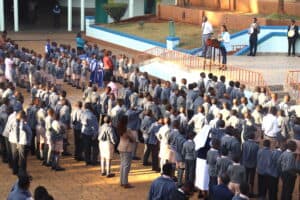
More than 500 students at St. Mary’s School Msongari, Nairobi were excited to learn about the Sustainable Development Goals (SDGs) and how they could be involved in achieving these global goals.
In a visit in the school on 6th February 202, we were honoured to interact with the students, sharing about the need to involve children in conversations and actions around the SDGs, through the SDGs club in the school.
Speaking to the students, the Executive Director of the Kenya SDGs Forum assured the students that their understanding of the SDGs would enable them contribute not only to the national development agenda but also to the global one; adding that achievement of the SDGs would make the world a better place for everyone.
Addressing the students at the morning assembly, the school Principal lauded the partnership and welcomed the idea of the SDGs club in the school, saying that it would enable the students to better understand the SDGs while contributing to their implementation. He also noted that knowledge on the SDGs would complement the students’ formal learning.
“SDGs clubs are safe spaces in schools for students to learn about the SDGs and take little but impactful actions within their context, just like the SDGs Academy for Children” Michael Adikwu, Lead, SDGs Academy for Children, Arigatou International.
This visit is part of a series of ongoing interventions with partners towards establishing SDGs clubs in schools. These clubs will be part of the greater partnership with the Arigatou International’s SDGs Academy for Children.
We are partnering with the SDGs Kenya Forum and the Kenya Flying Labs, to establish and equip the SDGs club at St. Mary’s School Msongari, Nairobi.
Arigatou International, through the SDGs academy for children believes that the best bet for a sustainable future is to teach children about the SDGs while they are young. The SDGs Academy aims to do this by providing children with simplified and easy-to-use learning tools on the SDGs. It will deliver this goal through the SDG model classroom for children that offer safe virtual and physical child-friendly spaces for interaction and exchange. Additionally, activities within the SDG Model classroom will involve a storytelling campaign for children on the SDGs, and multi-level gaming mobile applications and web apps that are relevant to children ages 4 and above.
The post <strong>Socializing the SDGs among children in schools</strong> appeared first on End Child Poverty.
The post Socializing the SDGs among children in schools appeared first on Arigatou International.
08/02/2023 - Socializing the SDGs among children in schools

More than 500 students at St. Mary’s School Msongari, Nairobi were excited to learn about the Sustainable Development Goals (SDGs) and how they could be involved in achieving these global goals.
In a visit in the school on 6th February 202, we were honoured to interact with the students, sharing about the need to involve children in conversations and actions around the SDGs, through the SDGs club in the school.
Speaking to the students, the Executive Director of the Kenya SDGs Forum assured the students that their understanding of the SDGs would enable them contribute not only to the national development agenda but also to the global one; adding that achievement of the SDGs would make the world a better place for everyone.
Addressing the students at the morning assembly, the school Principal lauded the partnership and welcomed the idea of the SDGs club in the school, saying that it would enable the students to better understand the SDGs while contributing to their implementation. He also noted that knowledge on the SDGs would complement the students’ formal learning.
“SDGs clubs are safe spaces in schools for students to learn about the SDGs and take little but impactful actions within their context, just like the SDGs Academy for Children” Michael Adikwu, Lead, SDGs Academy for Children, Arigatou International.
This visit is part of a series of ongoing interventions with partners towards establishing SDGs clubs in schools. These clubs will be part of the greater partnership with the Arigatou International’s SDGs Academy for Children.
We are partnering with the SDGs Kenya Forum and the Kenya Flying Labs, to establish and equip the SDGs club at St. Mary’s School Msongari, Nairobi.
Arigatou International, through the SDGs academy for children believes that the best bet for a sustainable future is to teach children about the SDGs while they are young. The SDGs Academy aims to do this by providing children with simplified and easy-to-use learning tools on the SDGs. It will deliver this goal through the SDG model classroom for children that offer safe virtual and physical child-friendly spaces for interaction and exchange. Additionally, activities within the SDG Model classroom will involve a storytelling campaign for children on the SDGs, and multi-level gaming mobile applications and web apps that are relevant to children ages 4 and above.
The post <strong>Socializing the SDGs among children in schools</strong> appeared first on End Child Poverty.
The post Socializing the SDGs among children in schools appeared first on Arigatou International.
02/02/2023 - Developing Policy Recommendations to Advance Faith-sensitive Mental Health and Psychosocial Support for Children on the Move
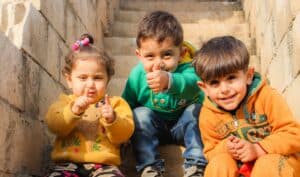
Over 150 policymakers, faith actors, representatives of governments and UN agencies and other humanitarian actors got together to produce concrete policy recommendations to advance faith-sensitive mental health and psychosocial support for children on the move.
UNICEF estimates that 37 million children are on the move in the world today. Children affected by forced migration and displacement are one of the most vulnerable groups, suffering from multiple violations of their rights and experiencing stressful and traumatic conditions that have a severe impact on their psycho-social well-being.
The rapid increase in child migration in the last decade has highlighted the need to set up specific policies and frameworks to protect children on the move.
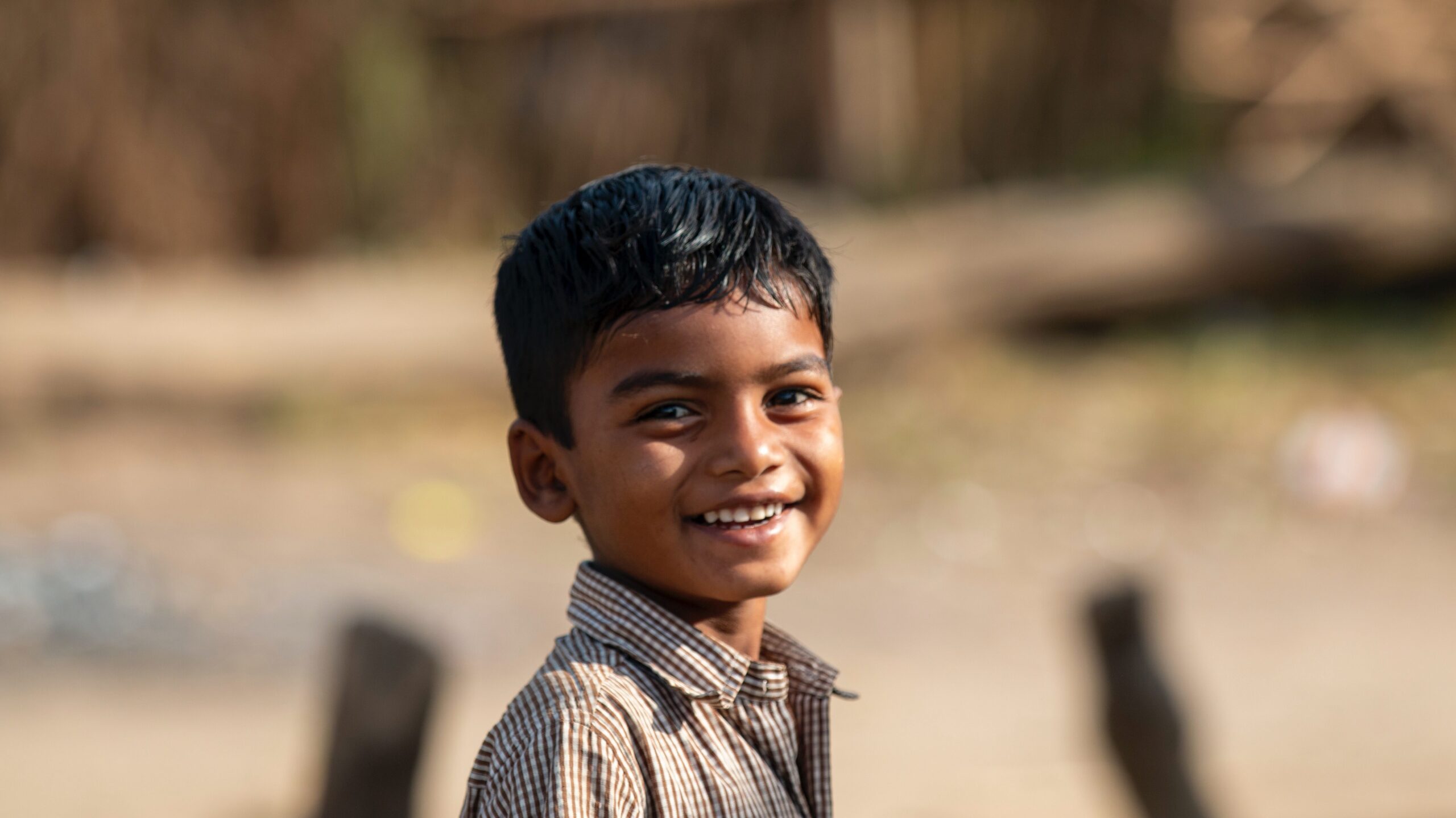
While mental health and psychosocial support of children on the move have been at the center of many effective approaches to enhance the protection and well-being of migrant children, faith-inspired psycho-social support frameworks have been largely overlooked.
“We need to meet people, children included, where they are at. We need to listen, learn, seek to understand and tailor our approaches. We need to make sure that policy leaves room for taking into consideration the religious and spiritual experience of the population in question,” stated Ms. Stephanie Shanler, Child Protection Specialist at UNICEF, during the roundtable discussion focused on Syria.
Faith-sensitive mental health and psychosocial support approaches play a crucial role in ensuring the well-being of children on the move. Spiritual nurture supports children’s resilience, acting as a protective factor positively affecting trauma responses during displacement.
Three roundtable discussions dedicated to producing policy recommendations were organized between December 2022 and February 2023. The discussions were focused on the countries of the Northern Triangle in Latin America (Guatemala, Honduras and El Salvador), Syria and Ukraine.
“It is not ‘faith-sensitive’ in terms of knowing everything about religious expression. It is very much about listening and asking questions. So much of the guidelines (Faith-Sensitive Approach in Humanitarian Response) is about mapping, assessing, listening, identifying,” highlighted Professor Alastair Ager, Director of the Institute of Global Health and Development at Queen Margaret University, at the Roundtable focused on the Ukraine crisis.
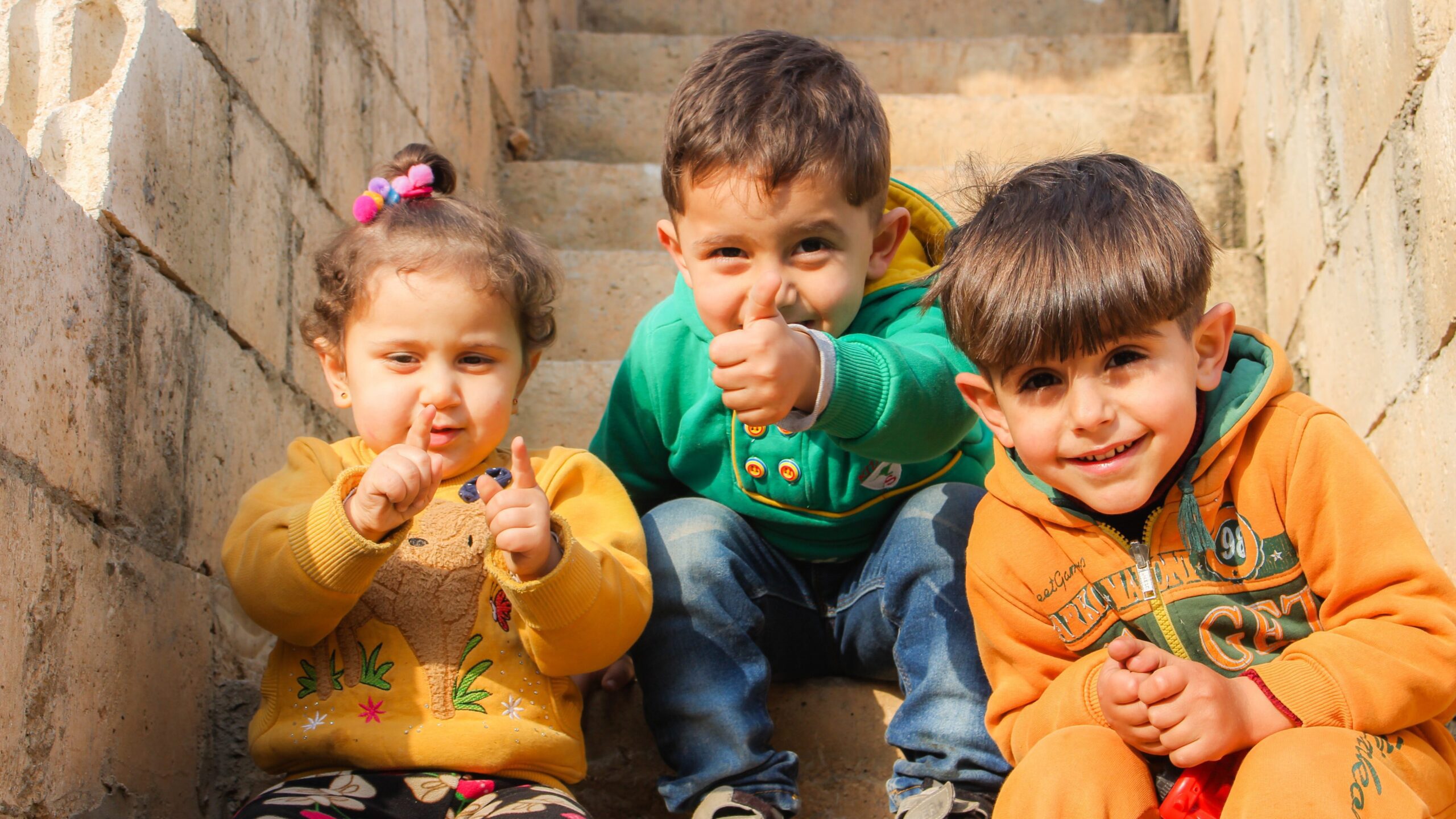
These roundtables were organized under the umbrella of the Partnership on Religion and Sustainable Development (PaRD) and sponsored by GIZ. They were co-hosted by Arigatou International, the Institute for Global Health and Development at Queen Margaret University, the United States Institute of Peace, World Vision International, KAICIID Dialogue Center, Islamic Relief Worldwide, the Network for Traditional and Religious Peacemakers and Syria Bright Future for the roundtable in Syria.
“We recognized, as we started rolling out the program, that faith leading was needed, especially as it was one of the few positive things in a child’s life that they could hold on to, that can propel positive behavior,” said Christalle Gemon, when sharing about her experience working with children and youth at the UNDP Trinidad and Tobago Accelerator Lab.
The first phase of this project took place back in 2021 when a series of three webinars were organized for educators and policymakers working with migrants and refugees in Europe. A booklet titled “Faith Sensitive Mental Health and Psychosocial Support (MHPSS) to Foster Resilience in Children on the Move” was launched in November 2021 as part of the project. The booklet builds on the reflections and recommendations collected during the series of webinars.
The policy discussions helped translate the knowledge and best practices outlined in the booklet into concrete policy recommendations. A policy brief will be developed in the first half of 2023 to inform the efforts of host governments and other relevant stakeholders in supporting, adopting and implementing faith-sensitive mental health and psychosocial support approaches as part of a broader strategy to foster peacebuilding and sustaining peace.
The post Developing Policy Recommendations to Advance Faith-sensitive Mental Health and Psychosocial Support for Children on the Move appeared first on Ethics Education for Children.
The post Developing Policy Recommendations to Advance Faith-sensitive Mental Health and Psychosocial Support for Children on the Move appeared first on Arigatou International.






